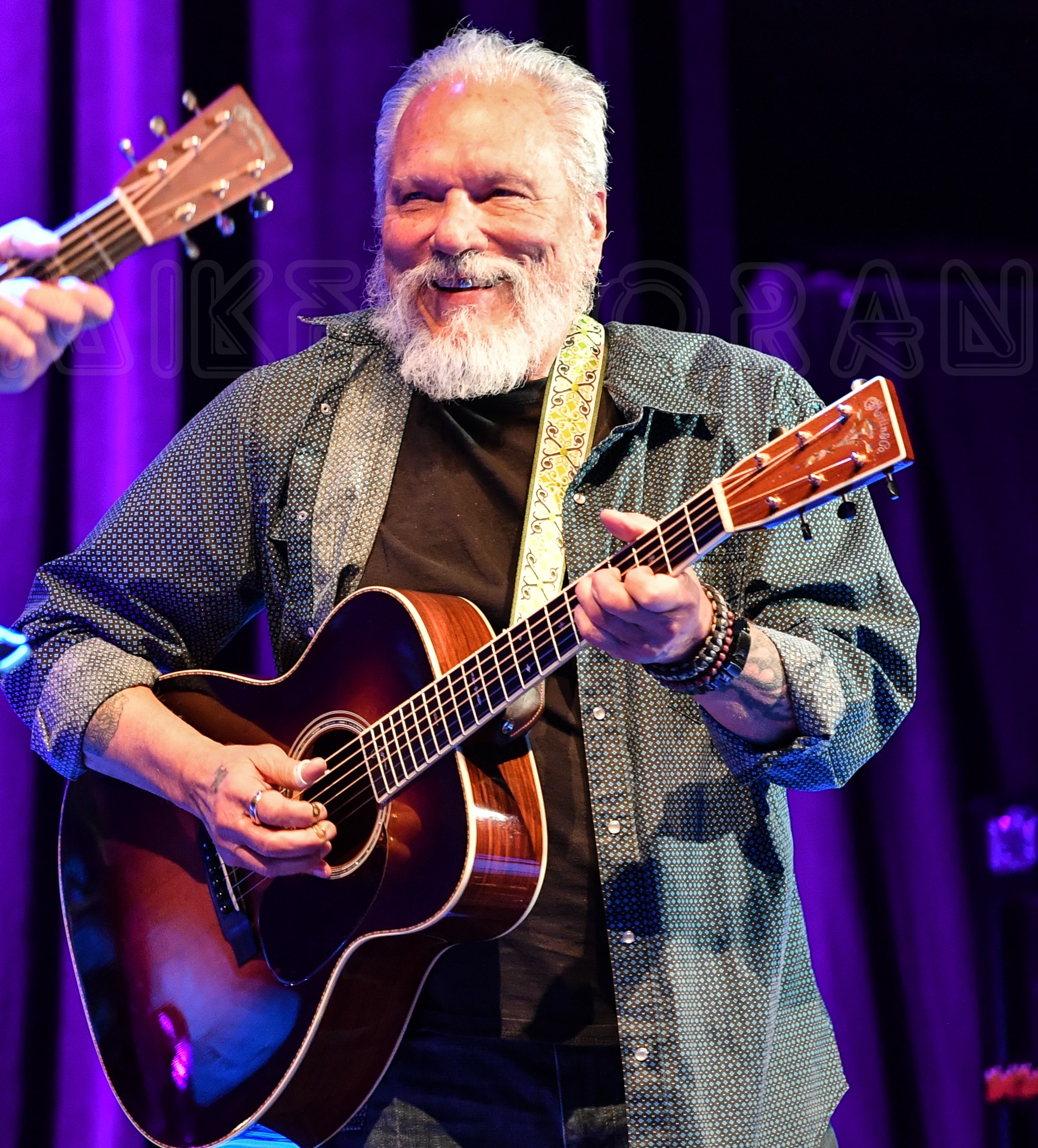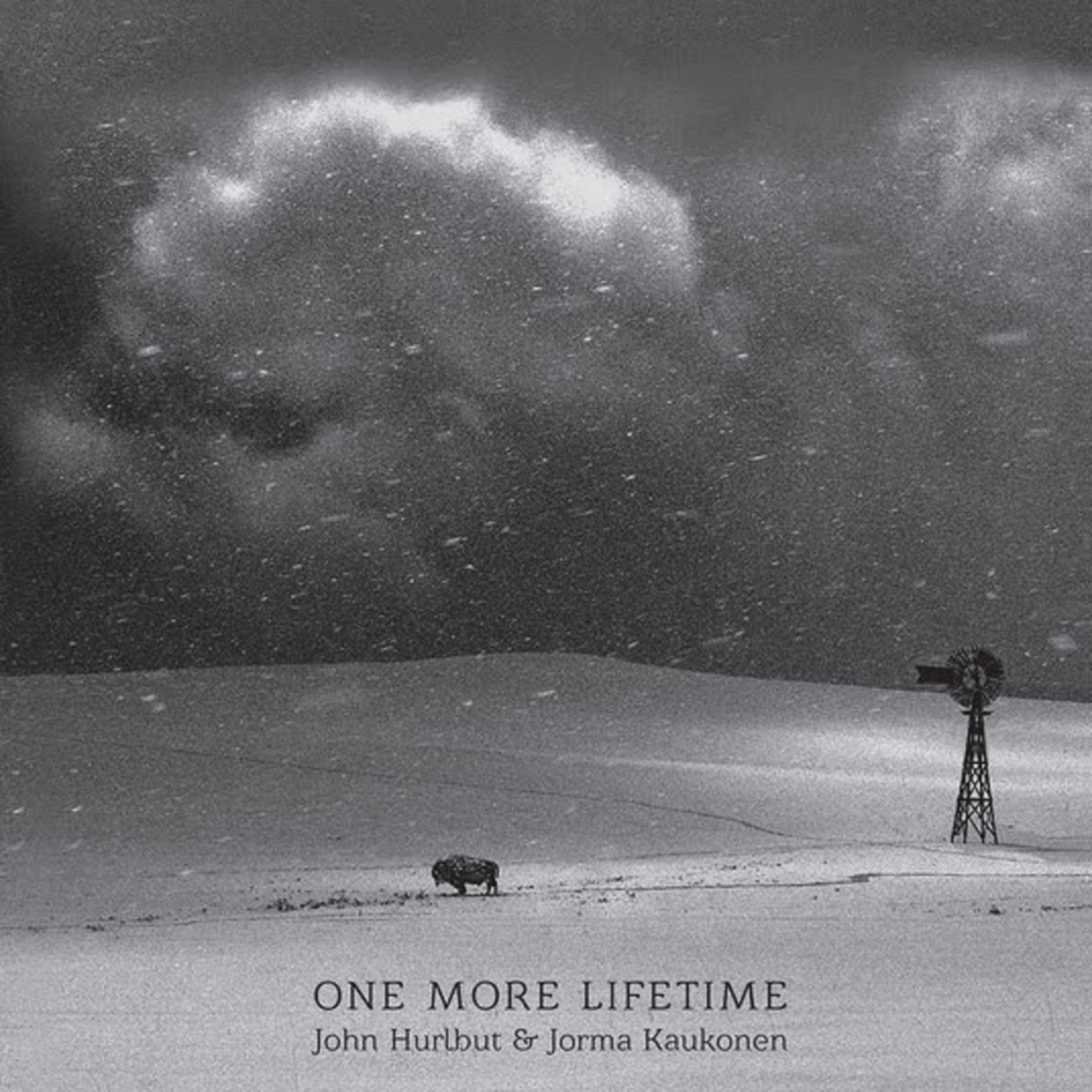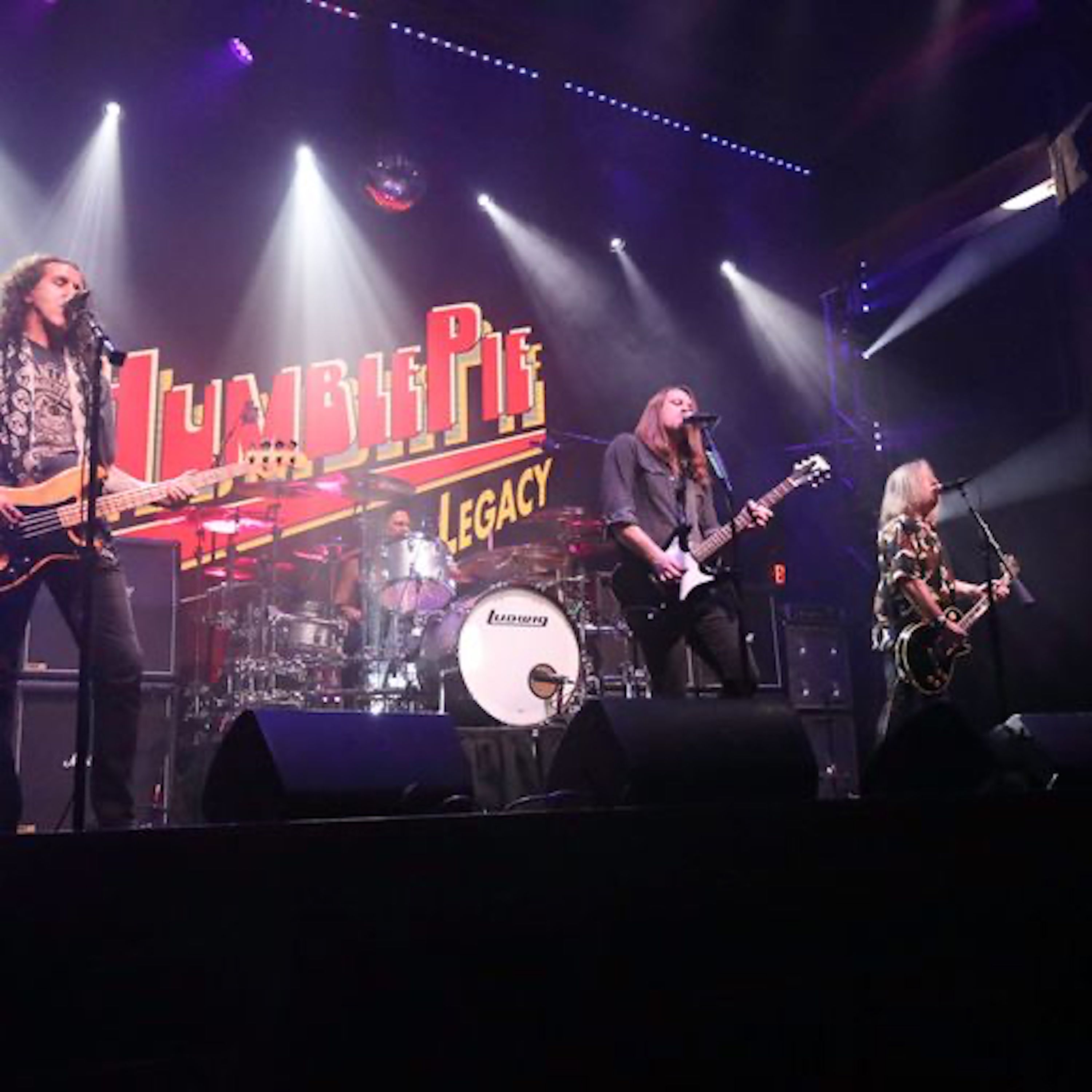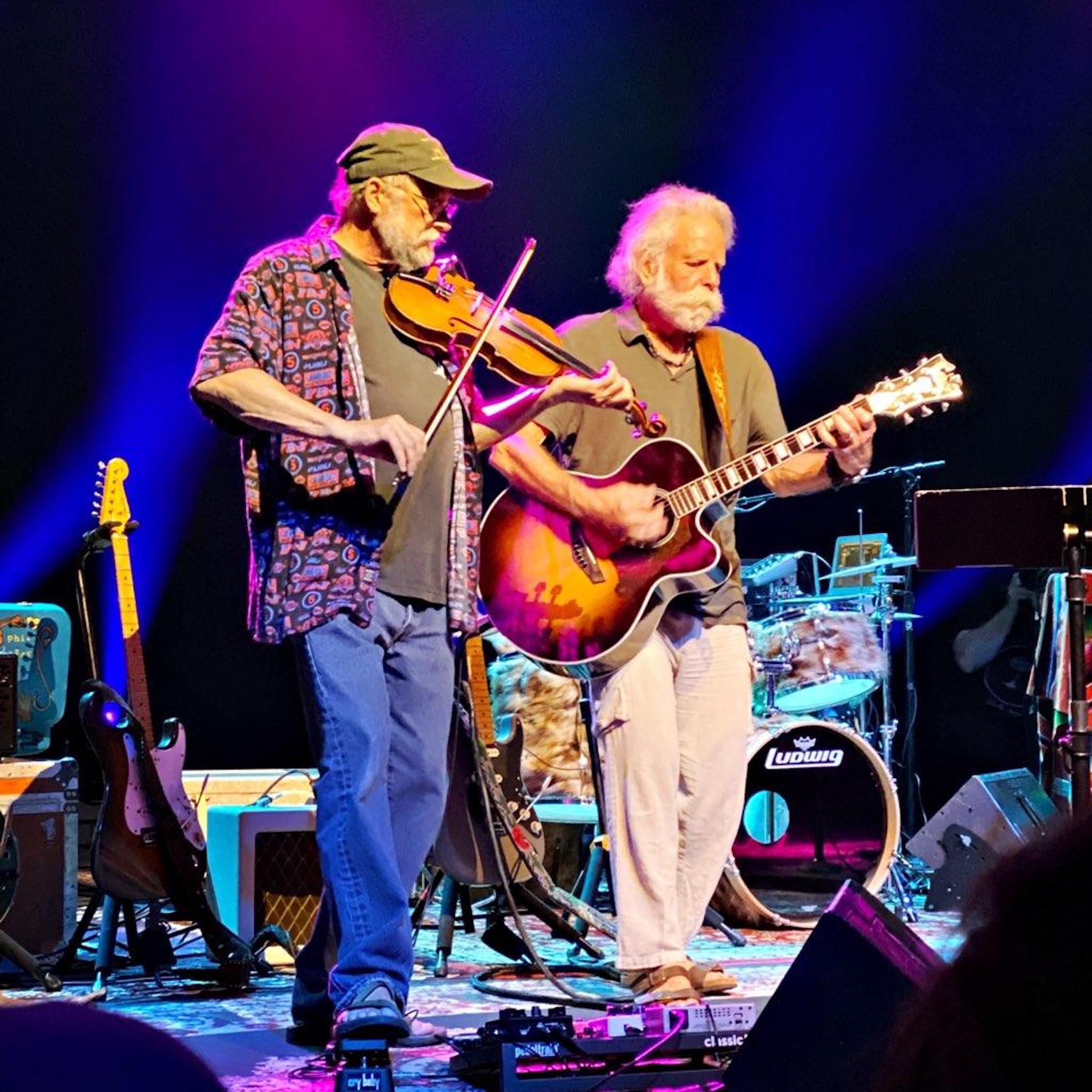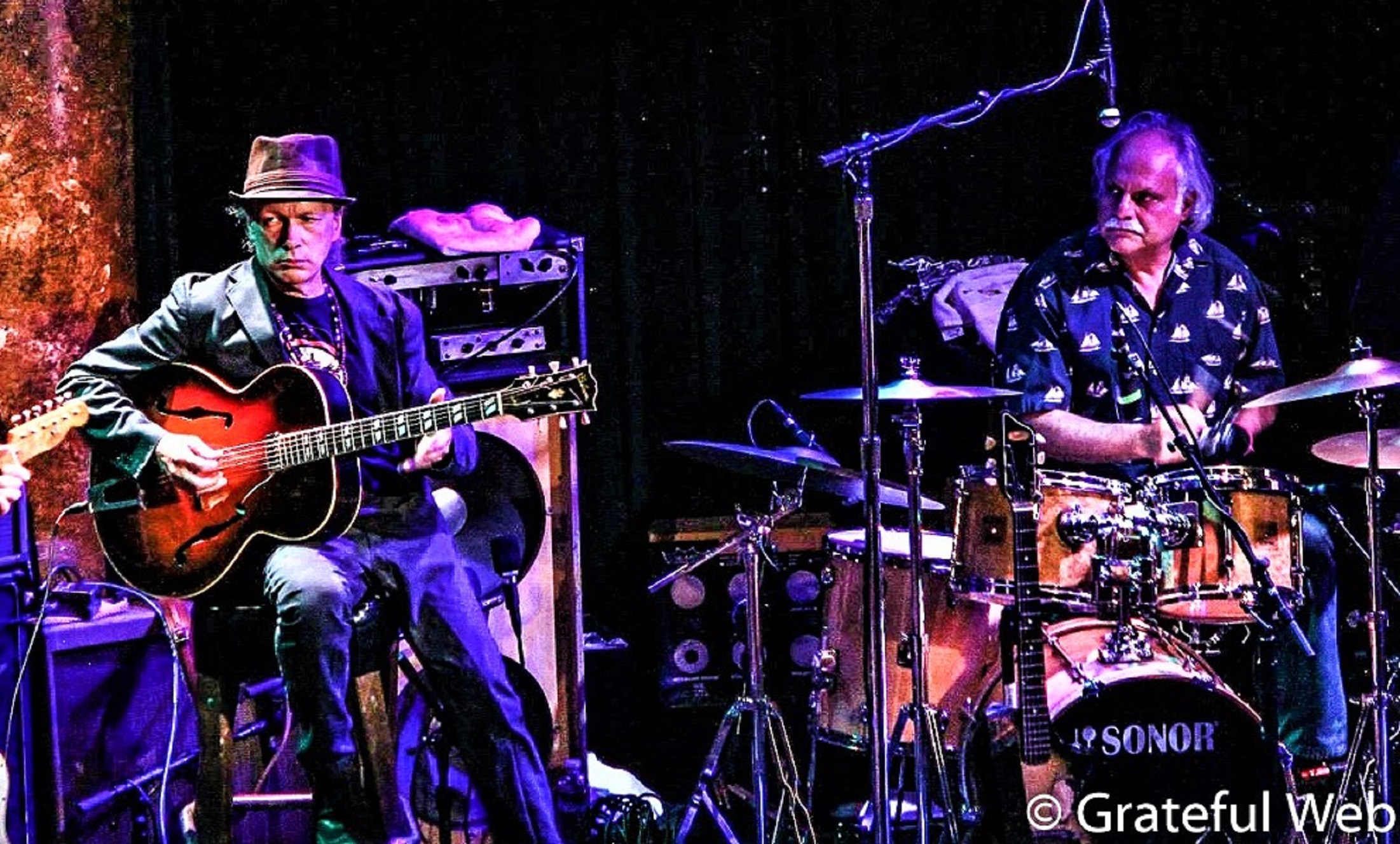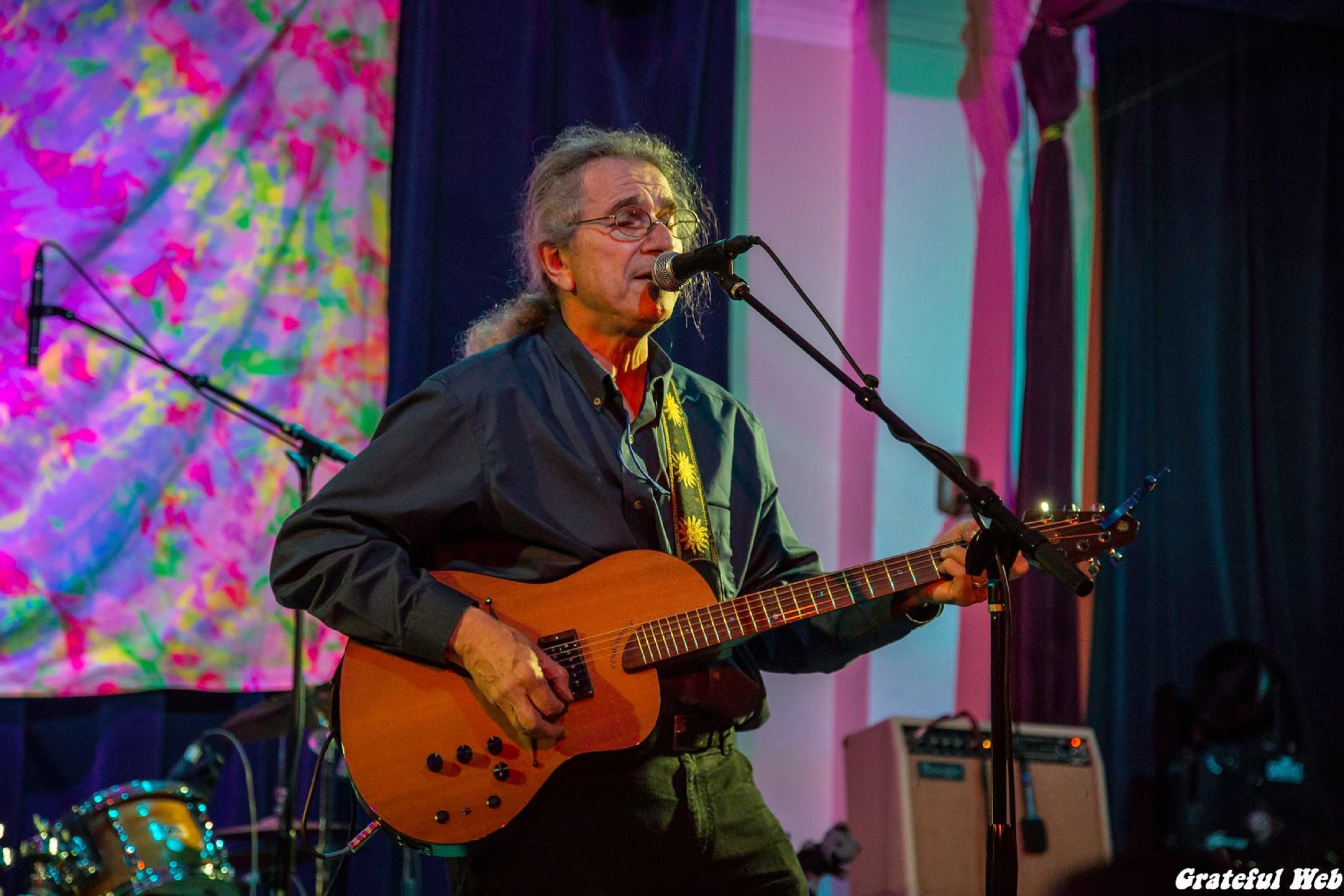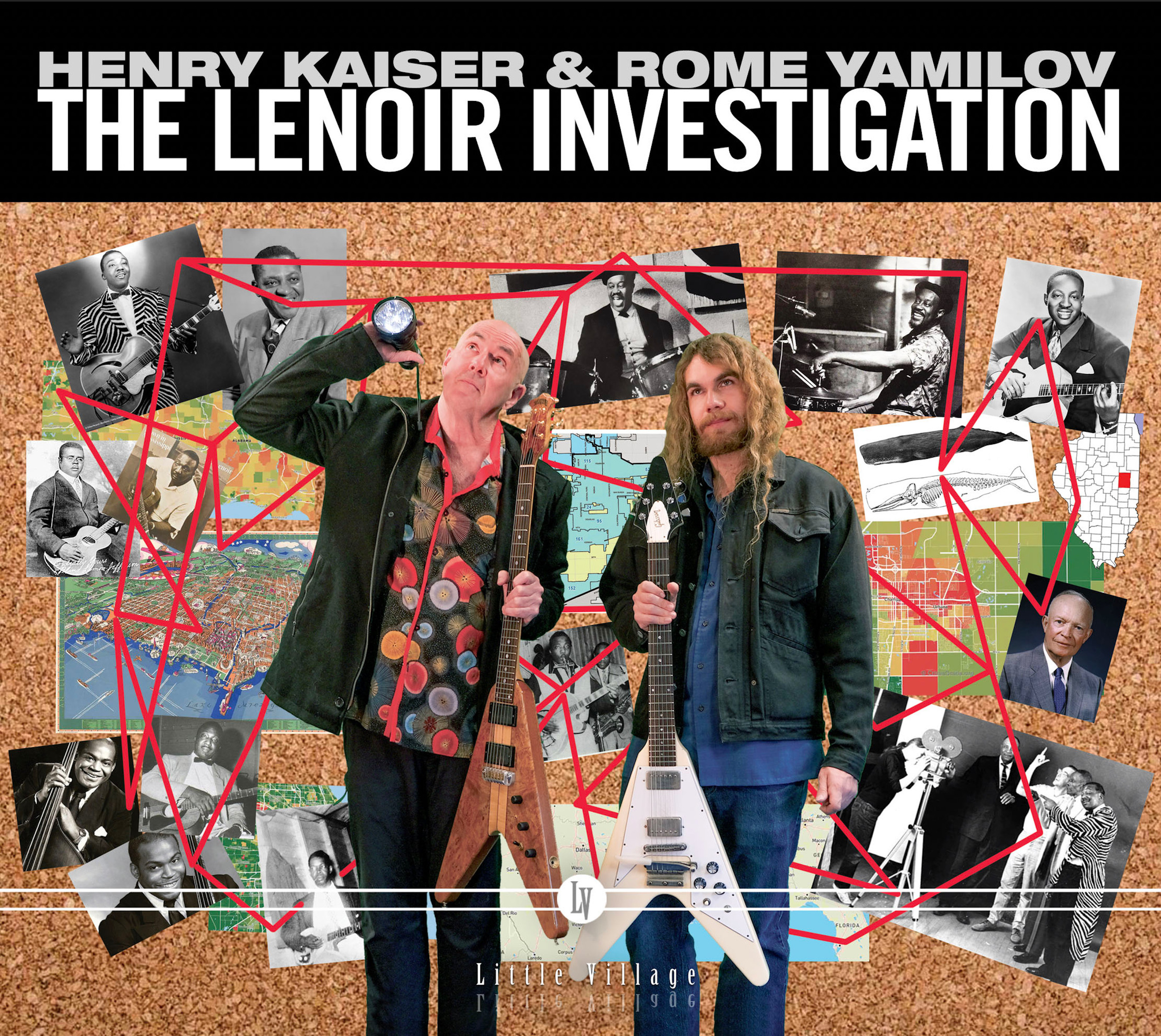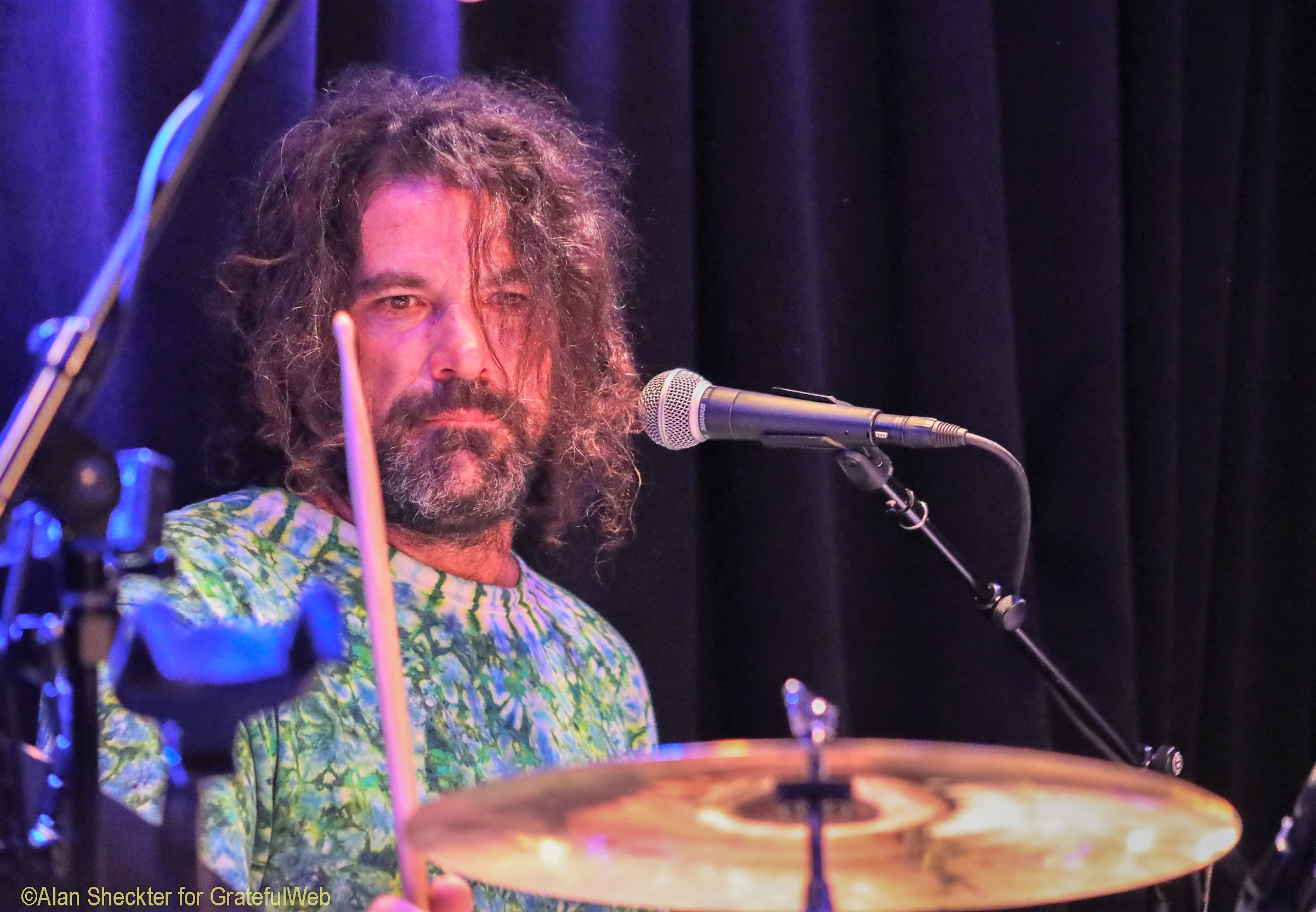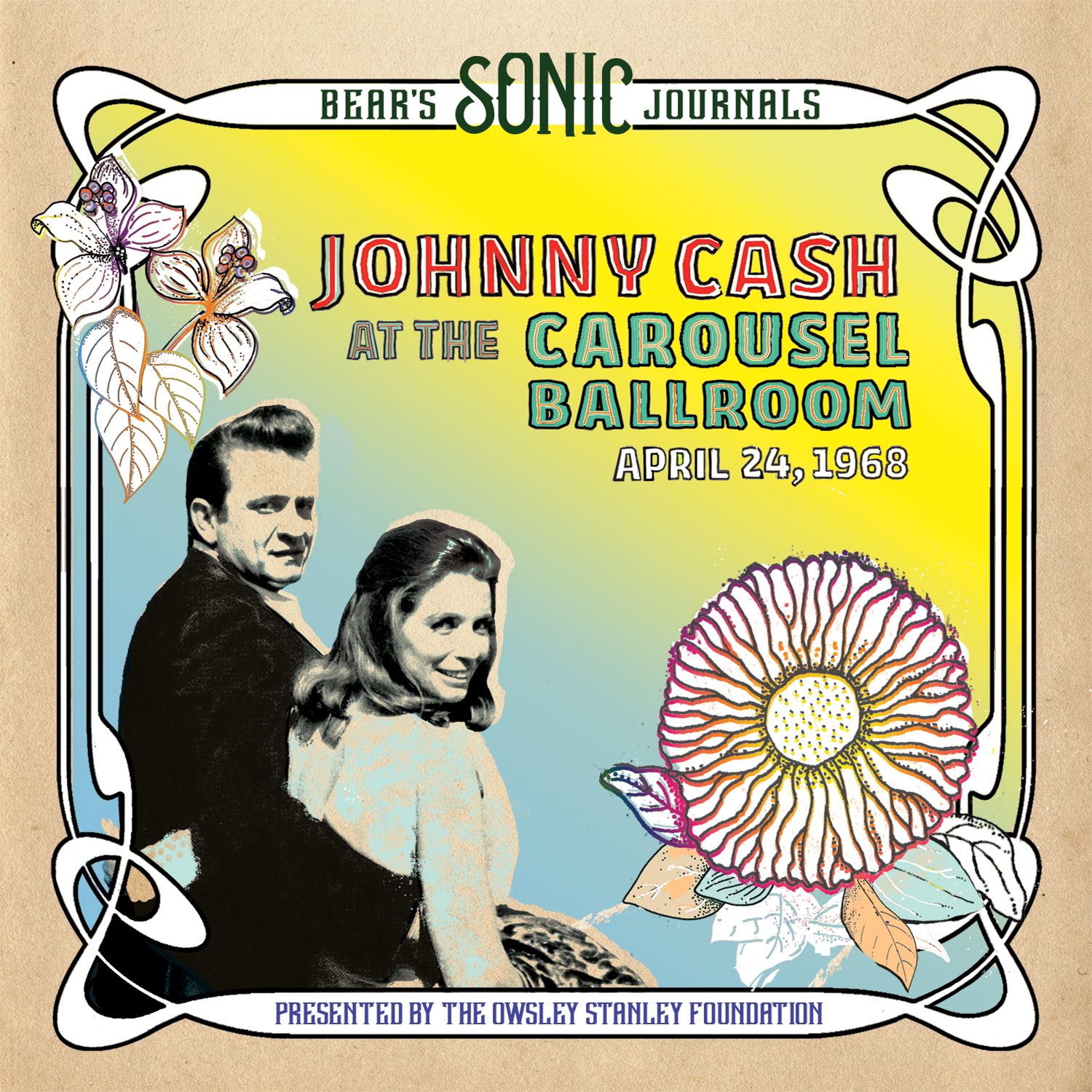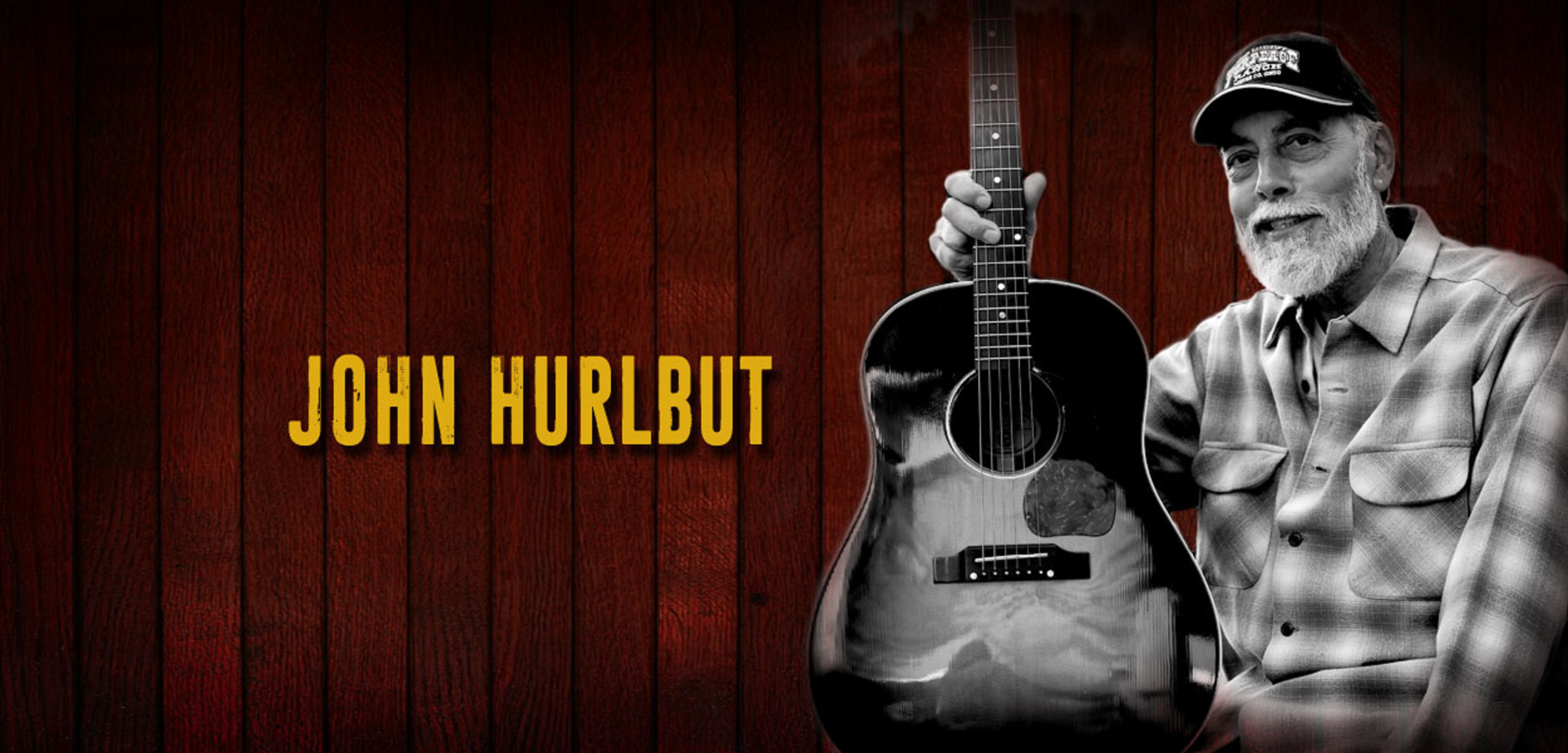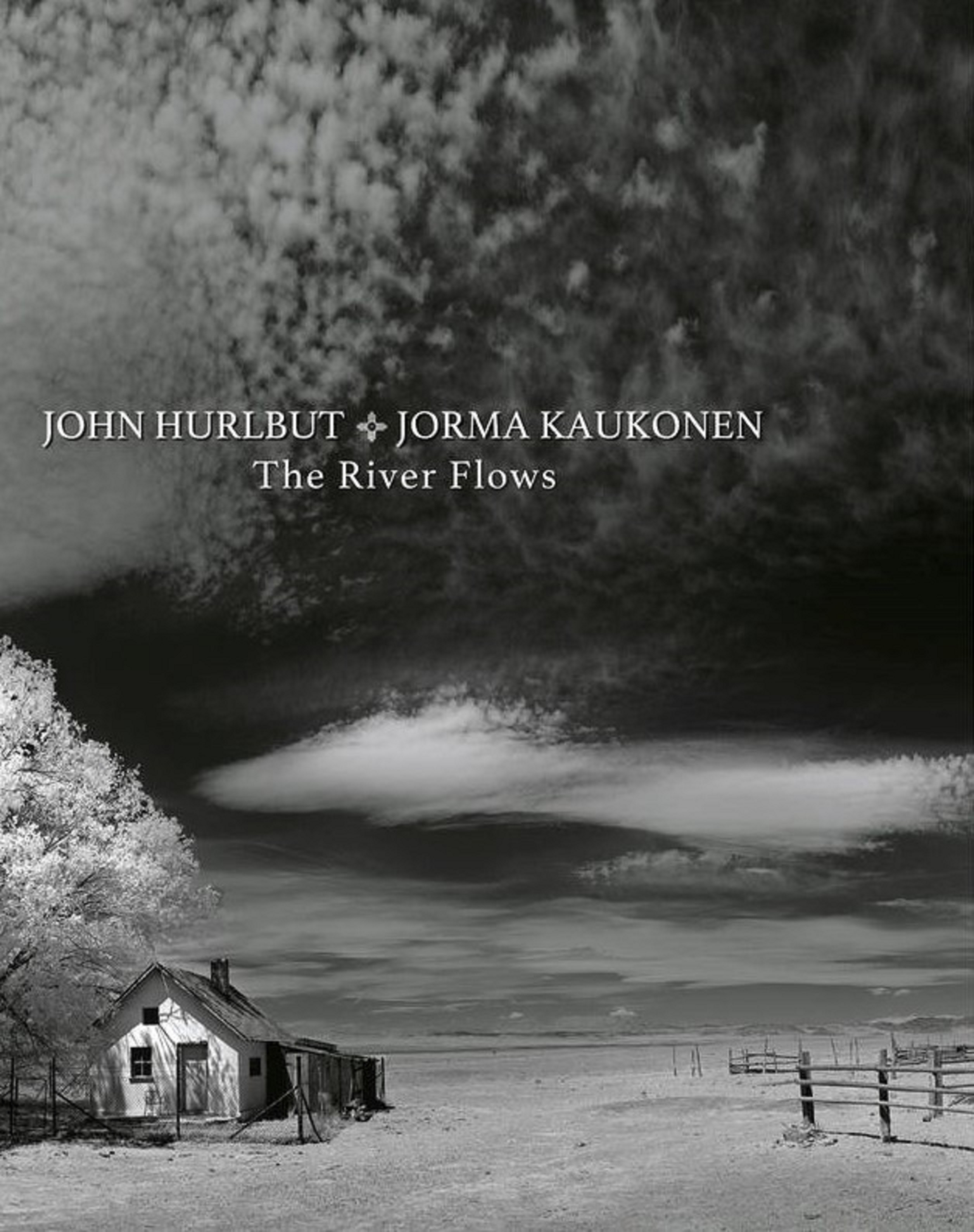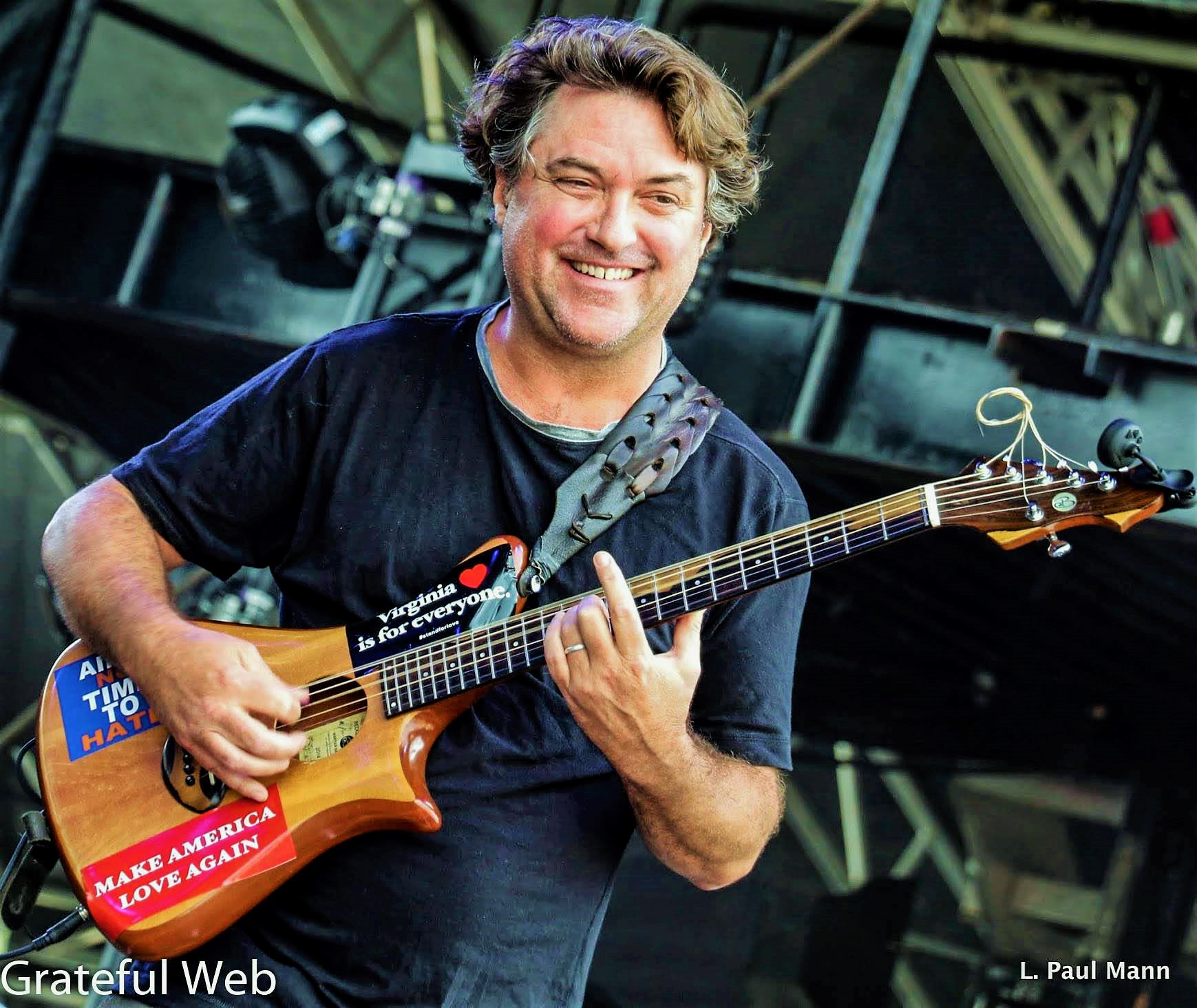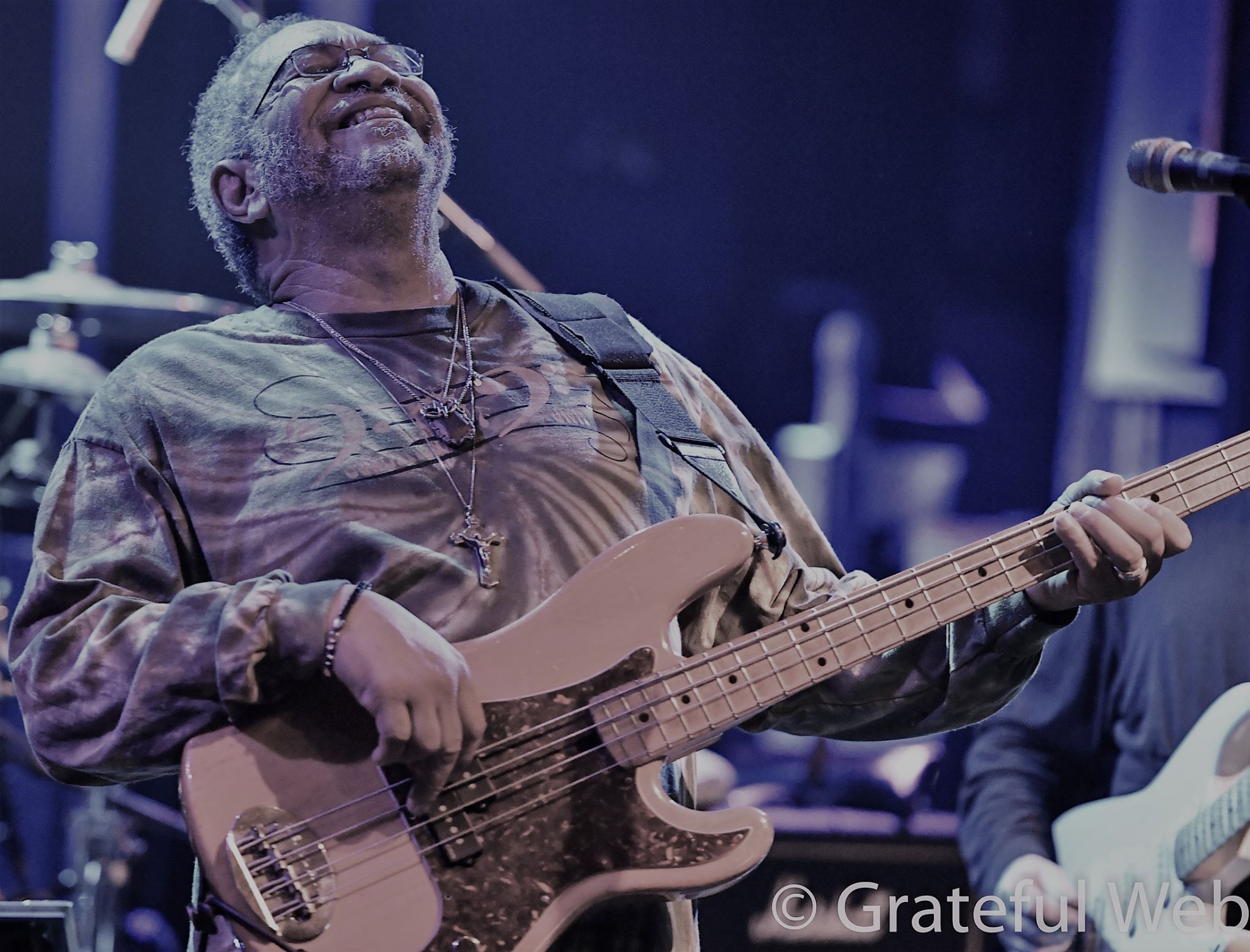All the world’s a vibration, yet music remains in the abstract, lurking in the formless world of potential, eagerly awaiting the inspiration of someone to bring it to form. The musician, in answer to this calling, illuminates what was once invisible, carrying us into the mind and heart of a moment, an emotion, or to the edges of the universe itself. Like an astronaut, these bards reveal a dimension of being, one central within all of existence—Feeling, the explorations of which seems to know no bounds. And when it comes to the enlightenment of this sacred resonant cosmos, few have been more instrumental, or inspirational, than Jorma Kaukonen.
John Hurlbut’s and Jorma Kaukonen’s newly-released, acoustic album, The River Flows, is a beautiful expression of the essence of music and its ability to move us. The depth by which this music arises cannot be taken lightly. I can’t possibly fathom all the stories and people, times and experiences that have comprised Jorma’s life, that have comprised Jorma’s sound, yet I cannot help but feel it every time his finger touches a string. Drifting back over the years, listening to Jorma’s explorations and creations, I feel as if I have traveled the cosmos, experienced what it means to be—both through emotion and insight—connecting to people and places, feelings and thoughts previously unknown. Can all this truly be divined from music? Perhaps, when that’s what comprises the sound.
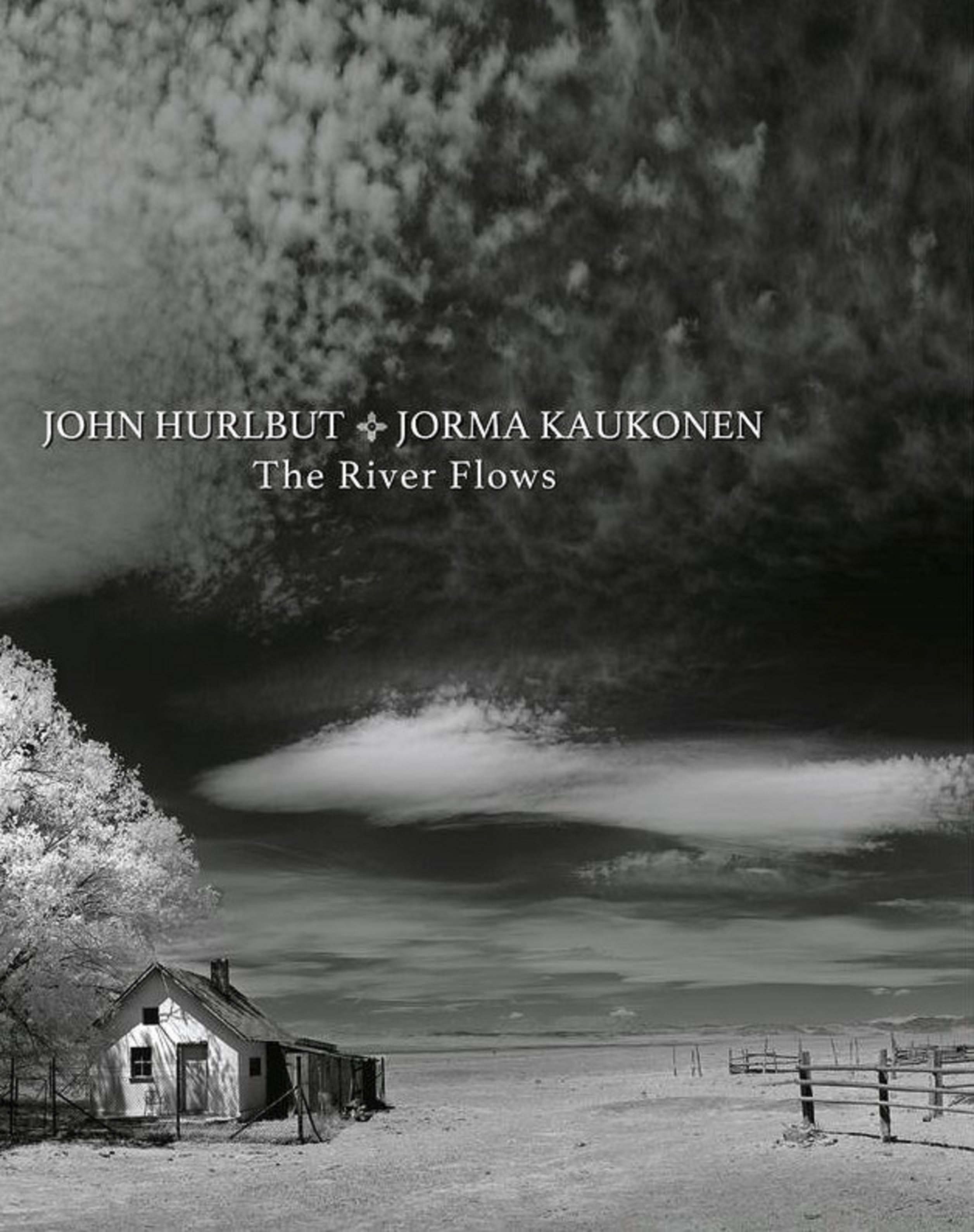
While Jorma’s accomplishments are often recognized by his reception of Grammy’s Lifetime Achievement Award, as well as his introduction into the Rock & Roll Hall of Fame, they are truly felt from within the listening. From Jefferson Airplane to Hot Tuna to John and Jorma’s, The River Flows, we are always carried through a unique sound experience, the flavor of which only Jorma can offer. Opening both his heart and home to music, Jorma and his wife, Vanessa, have built, and maintain, the Fur Peace Ranch, a guitar camp that features workshops, online lessons, live concerts, an eatery, and the infamous Psylodelic Gallery.
Though still touring with Hot Tuna, the break the pandemic imposed could not stop Jorma as a creative force, instead, bringing us the YouTube Quarantine Concert Series in their place. Mentioned in the New York Times as one of the concerts to catch, Jorma and Vanessa present a wonderfully homey experience as they interact with their audience every Saturday night, interspersing Jorma’s play with answering listener’s questions and telling stories. Jorma’s longtime friend and ranch manager, John Hurlbut, has become an instant success from the first time he was invited on stage for a couple-song pickup. Inspirational to the recording, The River Flows, John has become a mainstay to the concerts ever since.
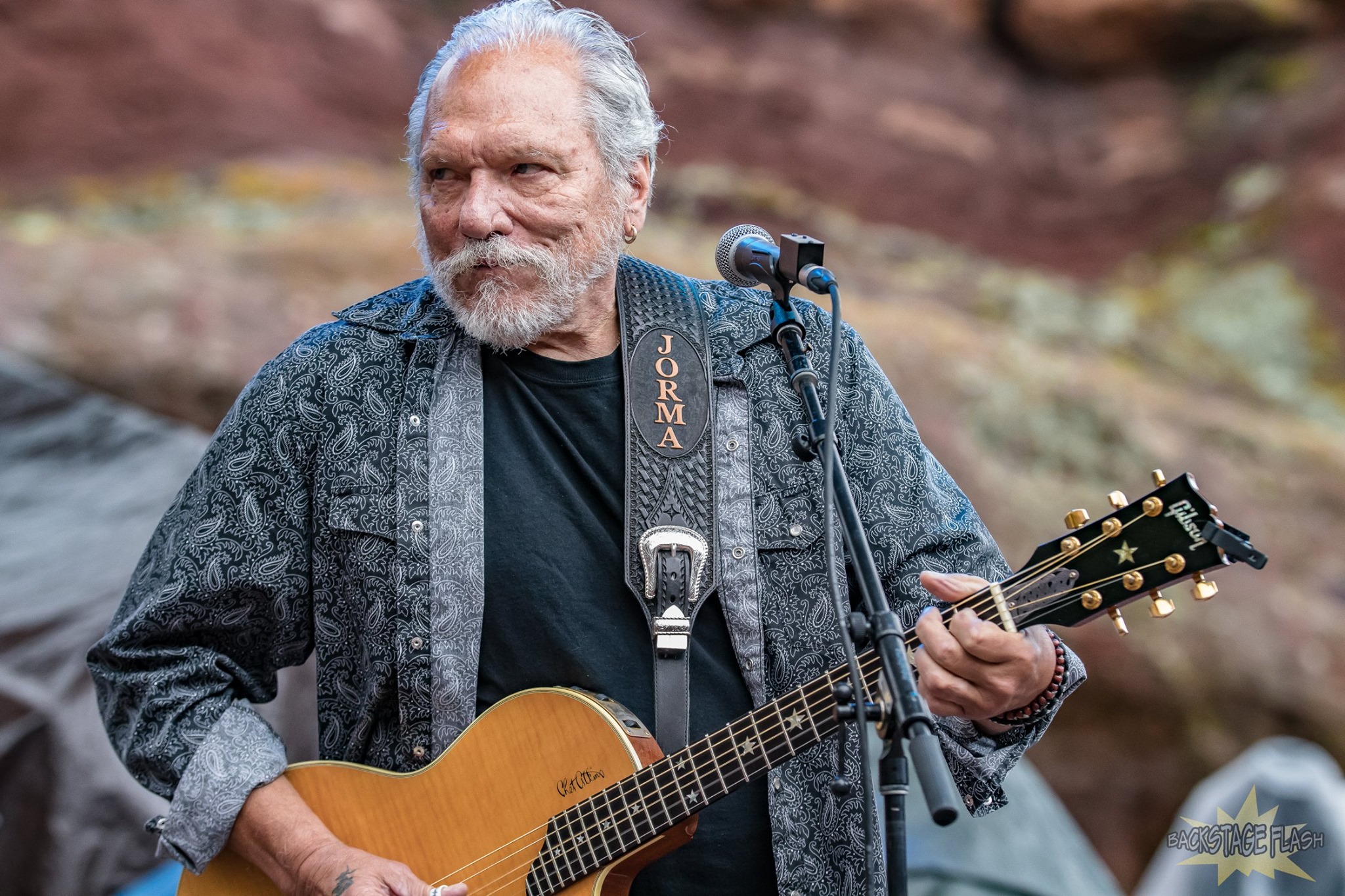
Speaking with Grateful Web, Jorma talks about the making of The River Flows, his friend, John, and his book, Been So Long. Sharing some thoughts on Jerry Garcia and Bob Weir, Jorma not only looks back over a long and fruitful career as a pillar of rock & roll history, but offers an intimate glimpse of the man behind the music.
Jorma: Hello
GW: Hello, Jorma. David here.
Jorma: Hello, David. Are you in Anchorage?
GW: No. I’m about 200 miles west of Fairbanks, the nearest road system.
Jorma: But you’re up there?
GW: Yeah. I’m out in the middle of the wilderness. It’s just me, my wife, and my son sitting out here in the woods with nobody around for a hundred miles.
Jorma: That’s awesome.
GW: Yeah, it is kind of nice. I think we got inspired a little bit back in the day.
Jorma: [laughs] Well, I’m in the middle of the woods, but I’m not in the middle of the wilderness by any stretch of the imagination.
GW: How big is your ranch?
Jorma: I’ve got 126 acres here.
GW: Oh wow! That’s nice.
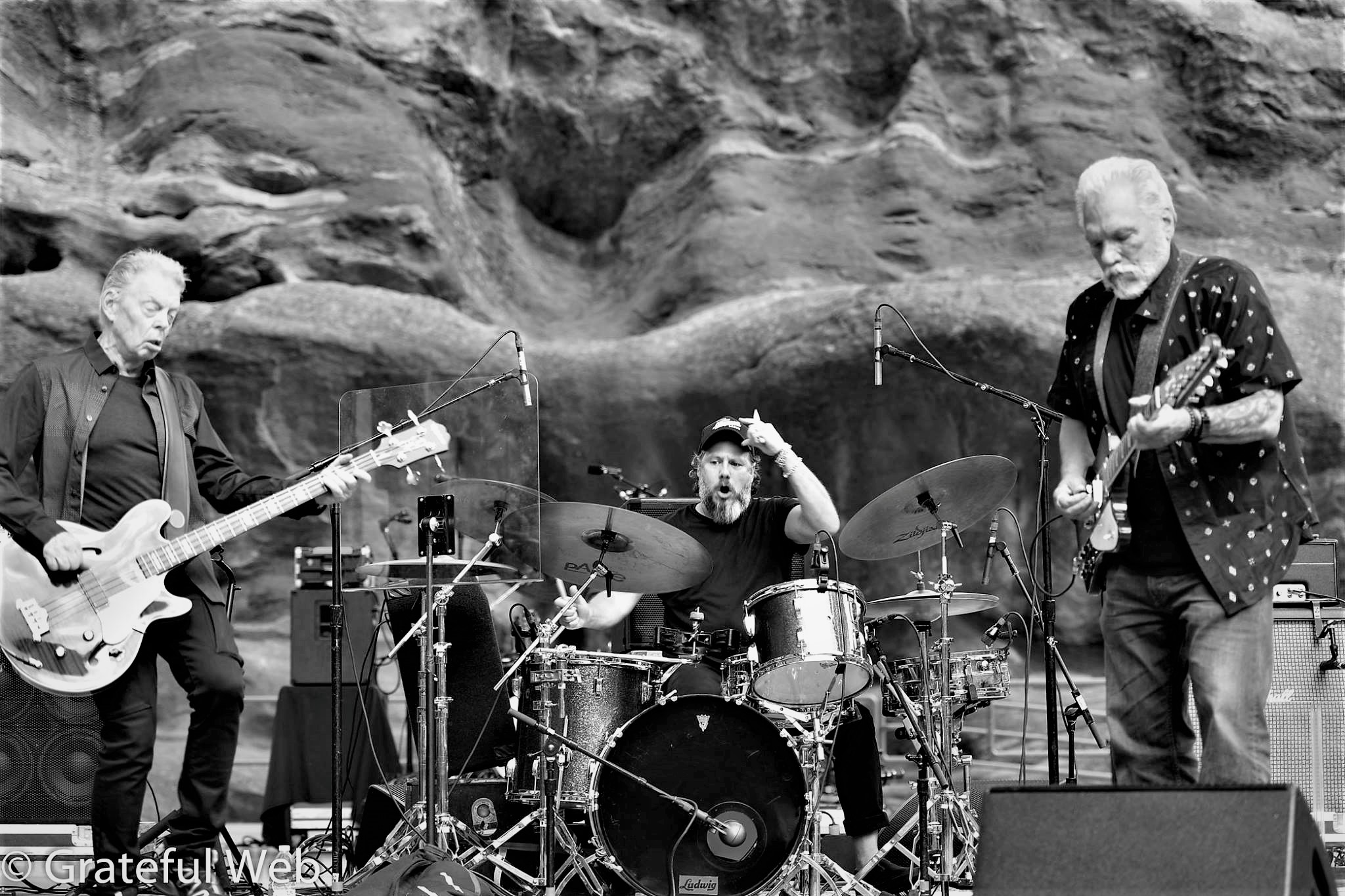
Jorma: Well, it sounds sort of petite when you think about Alaska, but we’re down here, so it’s fairly good sized.
GW: [laughs] Yeah, size is relative, I guess.
Jorma: As they say. However, I do like living in the woods. I don’t mind being twenty miles from town. That’s pretty easy to get up and deal. Well, heck, we were just talking about coming up to visit Alaska sometime. Obviously, my fourteen-year-old is in school right now. You must be homeschooling your kid, right?
GW: Yeah, definitely. I have another 28-year-old guitar player kid that we homeschooled and raised out here as well. He’s in Fairbanks now.
Jorma: That’s awesome. That’s awesome. I have a 23-year-old that lives in D.C. That’s fantastic, man. Well, boy, it would sure be great to visit you guys up there sometime.
GW: Oh God, we’d love it.
Jorma: We’ll definitely have to think about this. Obviously, not in winter, but . . .
GW: [laughs] Yeah. And I guess after the pandemic, huh?
Jorma: Yeah, well, there is that, of course. Yikes. Well, anyhow. Gosh, it’s great to talk to you. How cool. How old is your youngest?
GW: He just turned 17.
Jorma: That’s awesome, man. My son is 23, and my daughter is 14.
GW: Well, all right. So you’re still truckin’ along pretty good then. Keeps you young, huh?
Jorma: [laughs] So far so good. People always say that having kids keeps you young. I say it isn’t the young keeping you young, it’s being young. But it keeps you involved, that’s for sure.
GW: Yes, it does. It also gives you fresh eyes to look at the world through.
Jorma: Totally. Totally.
GW: That’s what I like about having a kid, just to see it all fresh through their eyes gives you a little giddy-up in your step, so to speak.
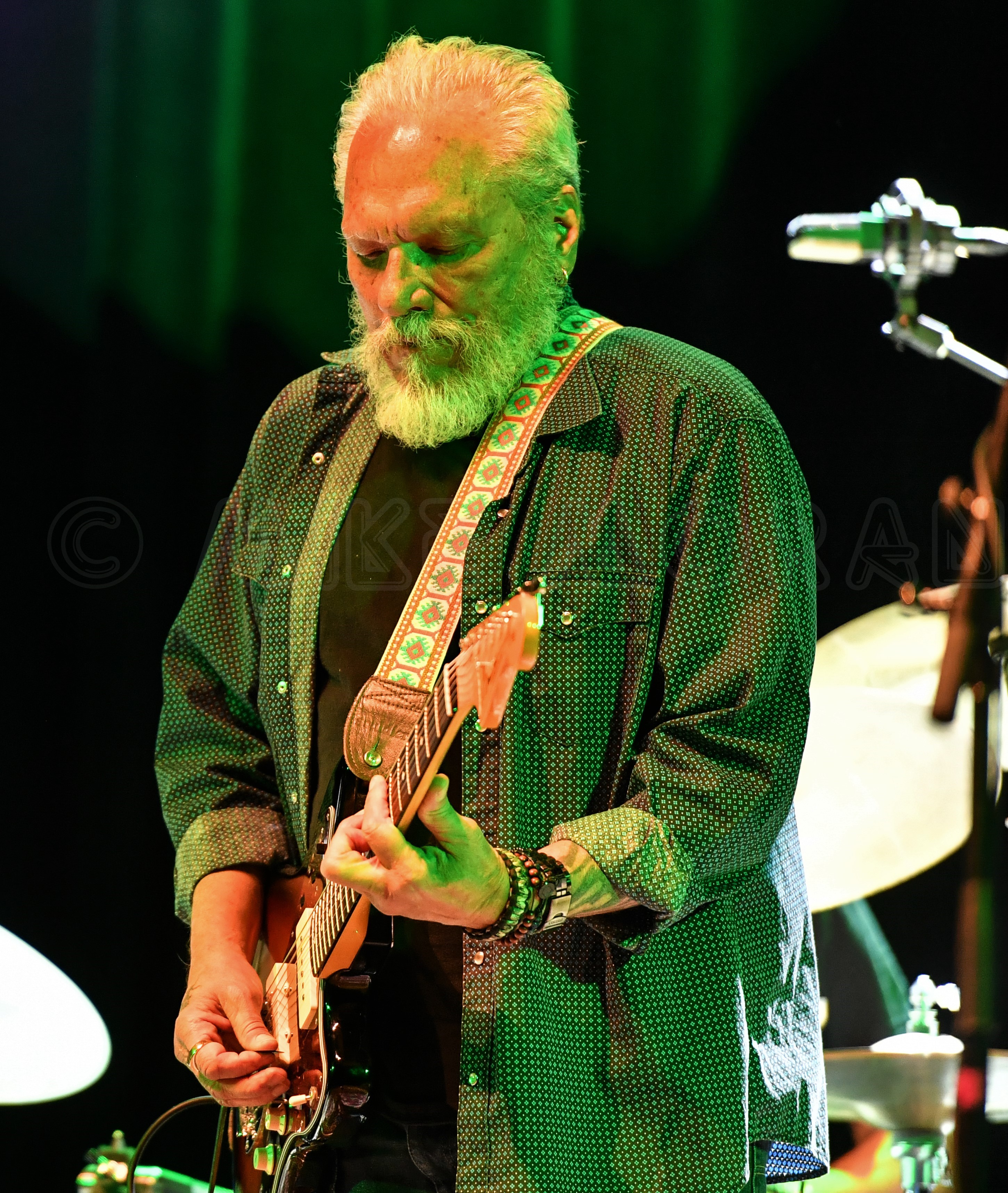
Jorma: Yes, it does. It’s awesome.
GW: I was wondering how the Ranch has been holding up during the pandemic. How have you guys been doing?
Jorma: Well, we did a couple of workshops earlier in the summer when things weren’t this bad. And my wife—my wife is more than Type A, you know, [chuckles] and so everything was scrubbed. We had to go down to only ten students, two five-person classes. Basically, we’ve been closed for the last eight months. I think we did about three or four in-person things. And that was really about it. We’ve been doing our concerts every Saturday night. If you got nothing to do tomorrow night at 8 o’clock my time, which is Eastern time, we got a free show on the internet, if you got internet up there.
GW: I’ve been checking out your quarantine shows. I was going to ask you some about that.
Jorma: Sure.
GW: Well, I’m sure you’re used to being really busy, but then suddenly with the quarantine, you’re not busy. So it seems like the quarantine shows have been a really big inspiration for you at an important time.
Jorma: Oh, absolutely! Totally. It was really an important thing. And actually, that sort of dovetails into this project I think we’re actually supposed to be talking about, about John. You know, my buddy Johnny and I, we’ve been friends for a really long time, and one of the things we’ve been doing at the Ranch over the last number of years is—we have a great setup, stuff is organized around food—and every time we had some sort of an eating event, Johnny and I would play for the lunch crowd, or the dinner crowd, whichever one we were doing. And it just started out. I’d just sit down and tell him to throw some songs at me and let’s see what happens, you know? And the more we played together, the more it occurred to me that I really liked what I was hearing, and I liked the fact that I was liberated from being the front guy for a band, or the solo guy, etc., etc.. I’m able to do with Johnny, in a lot of ways what I was able to do with the Airplane all those years ago, which just used to be a contributing lead guitar player. And that was so much fun. And I mean, I love Johnny, he’s such a likable guy. I just love his choice of material. It’s not the kind of stuff I would choose to do myself because it’s just not my thing as a performer, but I love the music. It just seemed like a no-brainer to do this. And then again, had we not been shut down because of the pandemic, it probably never would have happened. But all the sudden, I had this time and figured if not now, when, you know?
GW: Life has a way of popping out those jewels in odd times.
Jorma: Yeah, absolutely. And the other thing too is, like most of us in life in general, I have a large extended family. Justin Guip, who’s our drummer in Hot Tuna, and is also Larry Campbell’s production partner, they used to run lead on Levon Helm at The Barn, and I’ve done a couple of projects with him some years ago. So I called my buddy, Justin, up—he lives up on the north side of Woodstock in upstate New York—and he threw a bunch of gear in a van and drove down here. We just set up in our workshop here at the Ranch and cut it live right here. No movie magic, no digital editing, no overdubs.
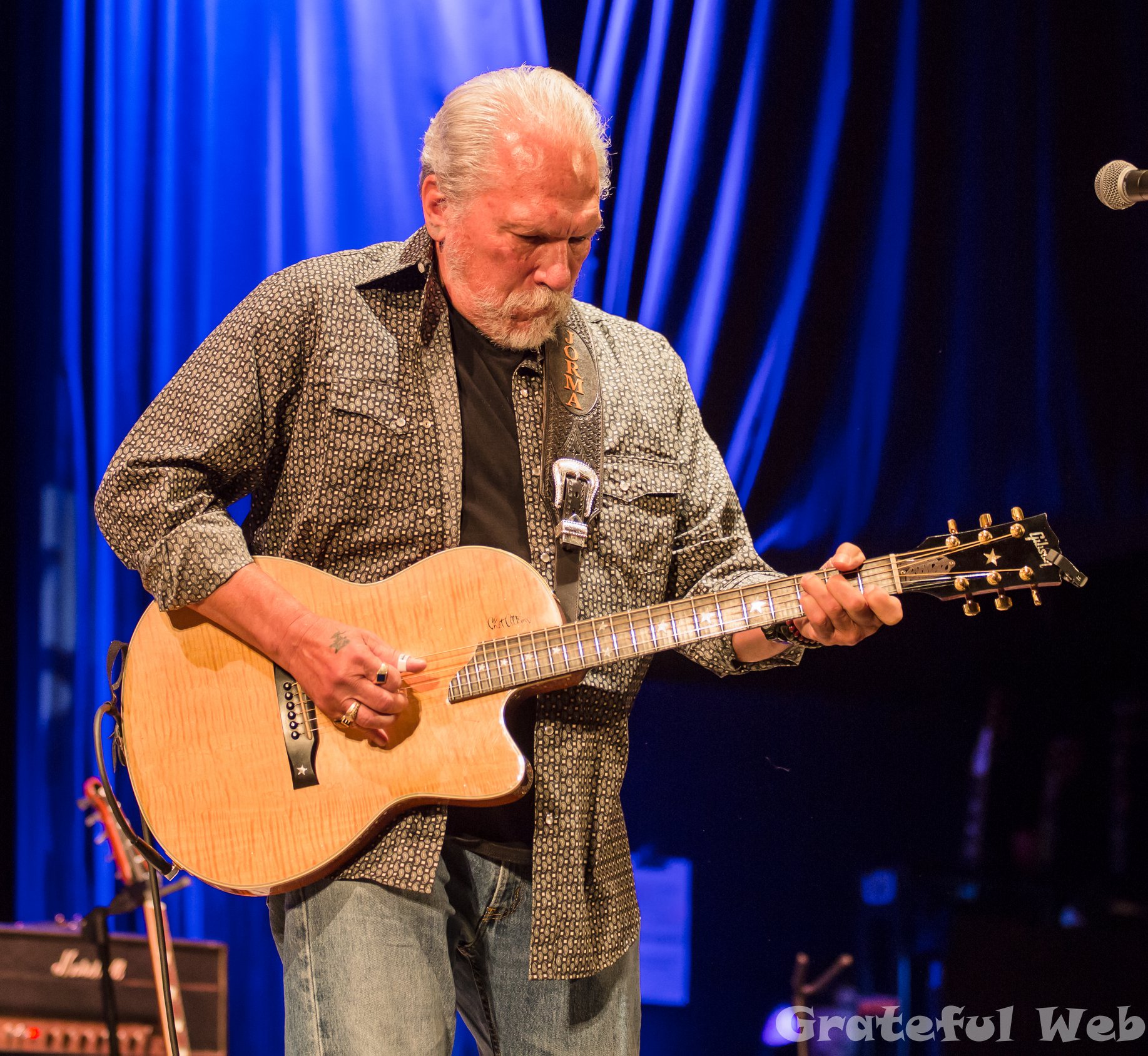
GW: That was one of the things I really enjoyed about the album. I did capture that aspect of you playing with John that you were just talking about, where I could feel John’s base there. It was like you had a place to let loose. I could feel your freedom and liberation as you danced along with the strings.
Jorma: Totally. Totally.
GW: And the guitar, I have to say, is absolutely beautiful. There’s the interview that’s included with the album where you mention wanting to touch people’s heart. Well, when I first got the album, I just looked down and poked on “People Get Ready” just to see what I was in for, and within the first ten seconds, and I’m not kidding, both my wife and I felt our beings just open up and tears filled our eyes.
Jorma: Oh man.
GW: I mean, within the first ten seconds. And I thought, “Oh, okay, this is going to be good.”
Jorma: That’s such a flattering thing to say. The thing also, is John. He has no pretensions whatsoever. I mean, he’s been playing music all his life, like many of us have, but he’s not a “professional” musician even though he has had gigs over the years. So he’s utterly unpretentious in what he does. And that’s such a liberating thing for a guy like me that’s been in the business for so many years. And the conversation of the music. I keep using that metaphor all the time because it’s so important to me. Just the conversation we’re able to have, it’s just really funny. And I love funny things to happen also, too, because I focused on the nuts and bolts of music all my life. Sometimes he’ll do some odd-ass thing as an arrangement, and I’ll go like . . . like we were messing around with the “House of the Rising Sun” yesterday, because we’re going to add it to our quarantine show at some point, and he does this thing where he—it’s an A minor, and when he goes to the five chord of this one thing, the E, he plays an E minor. And I go, “Johnny, it’s not supposed to be an E minor. It’s supposed to be an E major.” And he goes, “Well, I like it.” And I got to thinking about it, and I said, “Fine. You’re playing the song, I’m playing with you. You want to play E minor, I’m good with it.” [chuckles]
GW: [laughs] I found that with my son. Because of him learning out here, he didn’t have quite the structure of formal lessons. We didn’t have the internet at the time, and he just played on his own, from his own ear, what sounded good.
Jorma: Right.
GW: Then when he started to run into people, they would say, “Wow. You always go left when I think you’re going to go right.”
Jorma: That’s a really good thing. I think about this a lot. You know, as a younger guy, when I started playing lead guitar with the Airplane, that was an absolutely blank page for me because I had never done that before. And because I knew so little about the order of music the way someone who studies it knows it, we all came up with a lot of stuff that never would have happened otherwise. I find myself being much more conservative in my own music these days just because I know too much stuff. So your son coming into it from left field like that—creatively, that’s a really good thing.
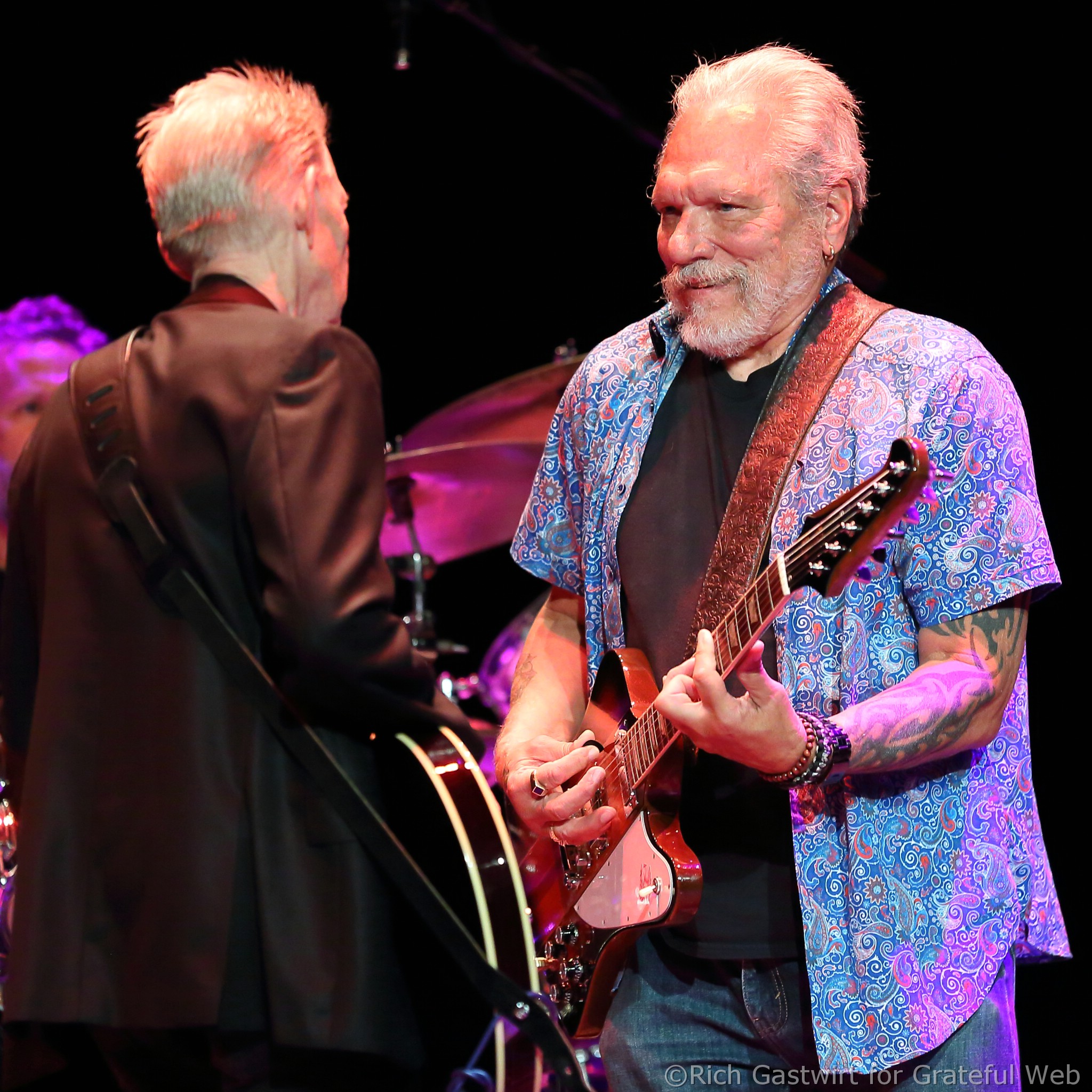
GW: I wonder about that, because you played for so many years. What are some of the benefits to being a longtime player? And what are some of the things you may feel you have lost since being a younger player? What do you find that’s different in your younger self and your older self?
Jorma: Sure. Well, that’s a really good question. One of the important things I gotta start this conversation with—I still just love the music in general, and the guitar in particular, as much as I ever did then. That has never changed. I really love it in a deep and profound way. That being said, I’m not a kid anymore, and you get exposed to all this stuff, and like it or not, unless you’re just a creative outlaw, you just find yourself following more rules. I’m not saying that’s a bad thing, because it just is what it is. I’m just in it in a different period. I find that, yeah, I know more stuff now. And I think in a way, it makes it more inviting to me to do what I’m doing with John because I know more about—I use more color chords than I used to. I know a little more about harmony. So as a participating guy, that’s a good thing. I just now was working on a new song that was sort of inspired by my daughter, called “Take Your Time”. And I’m working on this kind of stuff, and I think it’s going to be a good song. But it doesn’t have the myriad of parts that I would put into a song back in the sixties to early seventies because I just don’t think like that anymore. So I guess the answer to your question is—I’ve really dodged the question pretty much, I think actually. [chuckles]
GW: [laughs]
Jorma: I guess the answer is: it’s just different. It’s just different.
GW: I know with Jerry Garcia, when you look at his late sixties stuff, it’s just so driving, so raw, and just so powerful, coming right at your face.
Jorma: Yeah. Sure.
GW: And later you see him where he’s more laid back, yet the beauty comes out. There’s like a beauty and wisdom difference.
Jorma: Yeah. Yeah. And you know, Jerry’s just a great example of what we’re talking about here because I don’t have to tell you what a deep cat he was, you know. It’s unfortunate that he died so young, but that’s another story altogether. I mean, his passion for the music and his ability to extract these gems from it, never ceased to amaze me back in the day, and listening to it today. Our chef at our little restaurant here is a dedicated Deadhead and Jerry fan, and so in the kitchen, it’s Grateful Dead all the time. And I go in there, listen, and I go, you know this is really cool stuff. It’s really cool stuff. It’s not bubble gum rock & roll; it’s really creative, deep stuff. And of course you know—looking at the guy, looking at the odd-ass band the Grateful Dead was—is he had an incredible amount of colors to draw from, and so his pictures are beautiful.
GW: There’s no doubt. Bob Weir has definitely attributed you as a big inspiration in his playing at a very pivotal time in his life, so you can’t underestimate your own odd-ass influence within the Grateful Dead.
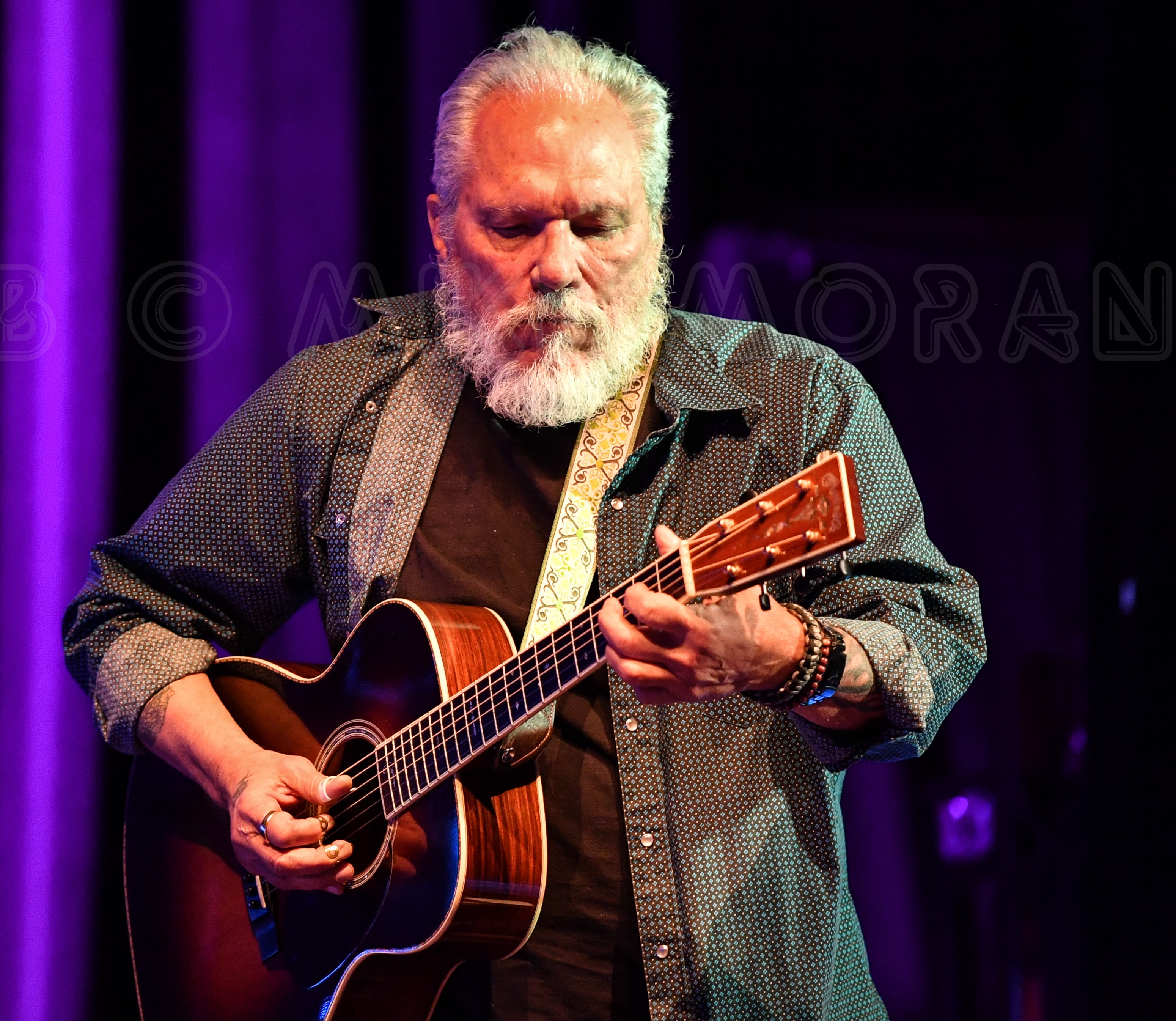
Jorma: (laughs) Well, we were just talking about that the other day. It’s something, because I never heard—Bob’s never said that to me, but he said it to my wife. And so I said—because you hear that rumor—and I go, “That’s really flattering.” And Vanessa said, “Well, we were at The Sweetwater, and he said it to me.” And I said, “Fine. That’s incredibly flattering.” Since you invoked him, he’s one of the most idiosyncratic and creative guys that I know, because nobody plays like him, period.
GW: That about covers it, doesn’t it? [laughing]
Jorma: Yeah.
GW: Well, I have to say, the jam you guys do in "Someone’s Calling”, about two-thirds of the way through, I could just cut that out, put it on a loop, and listen to it all day long. It’s a phenomenal jam, and even though you’ve kept the songs relatively short other than “Easy Rider”, you’re definitely sliding that guitar and that little piece in each song.
Jorma: Yeah.
GW: That really does bring out the feeling. Because there’s something about—I think this is what did so well for Robert Hunter—is when the music is played right, when you have that level of quality and ability, somehow, suddenly those words take on a deeper meaning, and they become metaphoric, and then the words mean so much more to you. And you guys accomplished that on this album in a fantastic way.
Jorma: Oh, thanks, man. Thanks. Listen, that really means a lot to hear that from somebody that listens to music the way you do, because as an artist you really appreciate when somebody actually listens to what you’re doing rather than whatever, you know? I mean—hey I’ll take the win, but when you think about guys like me and my buddy, John, we still listen to vinyl. No, I don’t do it a lot, but I do do it from time to time. And when I sit down to listen to something, whether it’s on a record player, or whether it’s on my iPhone or whatever, it’s like a listening appointment for me. I don’t listen to background music. I listen to stuff as if I’m reading a book. I’ve always done that. I still do it. So when somebody responds to something I’ve done in the way I’d like to listen to something myself, that’s incredibly—it honors me, it really does.
GW: I like to listen at night because I can lay down in bed, lights out, and really take the ride, catch you doing your stuff. I have this one friend of mine. He’s been playing in Alaska forever as a band guy, and he’ll get off the stage sometimes and say, “Aw, man, did you hear me mess that one part up?” And I’m, “Guy, it’s two o’clock in the morning and everybody’s drunk and partying. Nobody caught you messing up.”
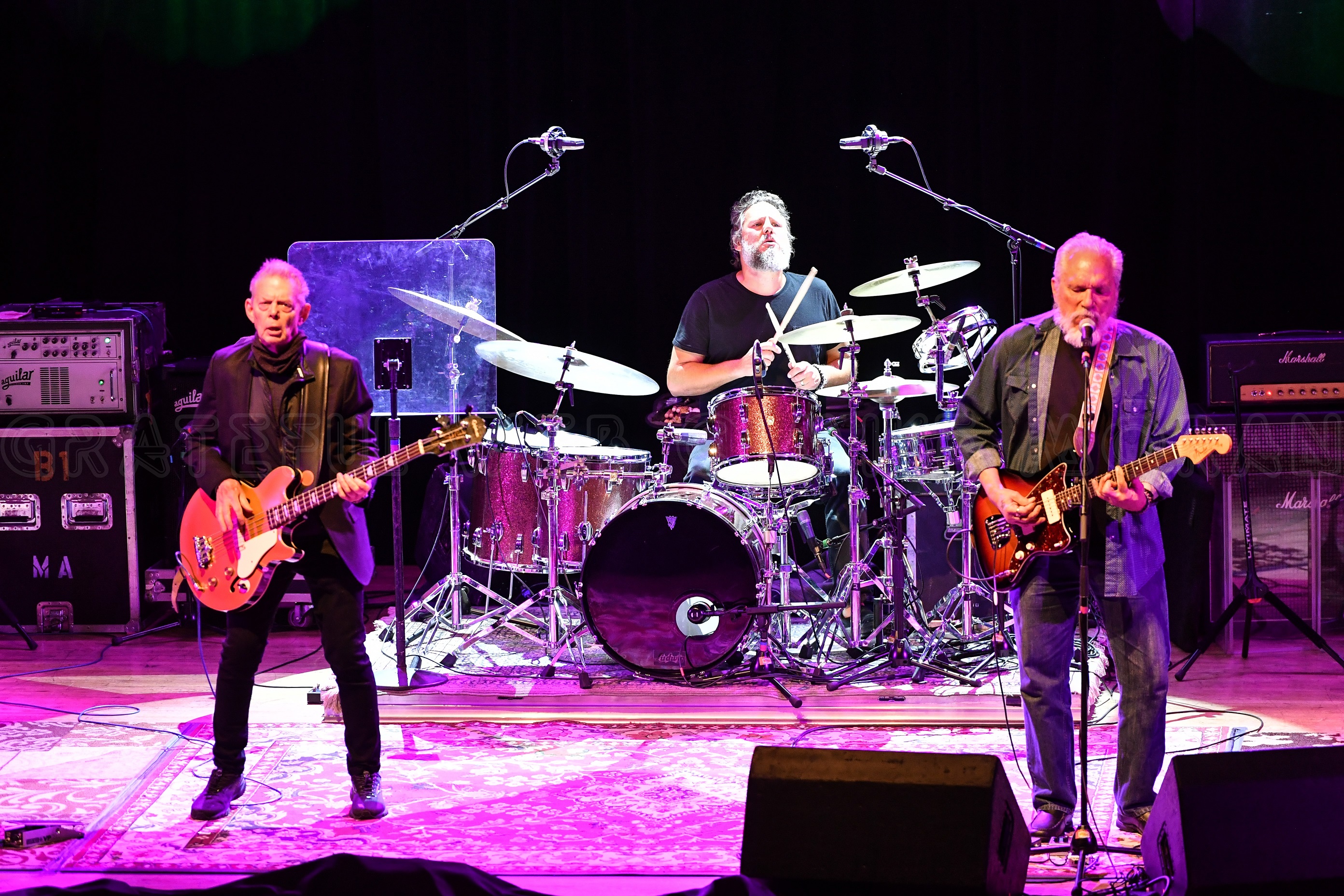
Jorma: [chuckles] Right. That’s funny stuff. Well, as I’m fond of saying, when guys like us make mistakes, nobody dies.
GW: [laughs] Right. Right. It’s a nice job to have really, because it’s not like football or something, at thirty-two you’re washed up and now you become an announcer. You can keep playing. And obviously, you’ve proven that.
Jorma: Yeah. Absolutely. It’s hard for me to—I mean, how can anybody rate themself, if that means anything at all whatsoever anyway—but I think that I’m not as fast as I once was, if that matters at all, but I think I’m a better musician. I think I get more out of my personal playing now than I ever did. That being said, I’m an old guy, so I can barely remember what I had for breakfast, so, you know, [chuckles] it makes it easier to live in the moment.
GW: [laughter] Good thing your fingers remember what they’re doing.
Jorma: (chuckles) Yeah. I mean, one of the things we love about the Quarantine Concerts too, is we don’t plug in. That’s all acoustic with just a microphone in front of the instruments. I mean, obviously if I’m playing an electric guitar, which I may do this weekend, then I’m plugged in, but to the acoustic guitars, that’s just the room sound and a mic and the fingers.
GW: You mention in the interview that’s included with the album about how you guys set up a bunch of microphones for the recording. And man, that came across great. They’re fantastic guitars. You can immediately tell you’re not playing with shabby instruments.
Jorma: Yeah, they are. They are.
GW: The sound came off great.
Jorma: Aw, thanks, man. Well, it really helps to have—that’s where a guy like Justin Guip comes in, our main engineer on that. I mean, he’s just got magical ears. I remember back in the days of the Airplane, the early recording era of all of us who came of age in the sixties recording, we didn’t get to do a lot of overdubbing and stuff like that because we didn’t even have noise reduction ’til Dolby, ’til we did After Bathing At Baxter’s. So you really kind of had to capture the moment. And a lot of the sound really depended on the players, the room, and microphone placement. I mean, a producer like Al Schmitt that did all those Airplane albums and stuff, he was just a master at knowing where to place microphones.
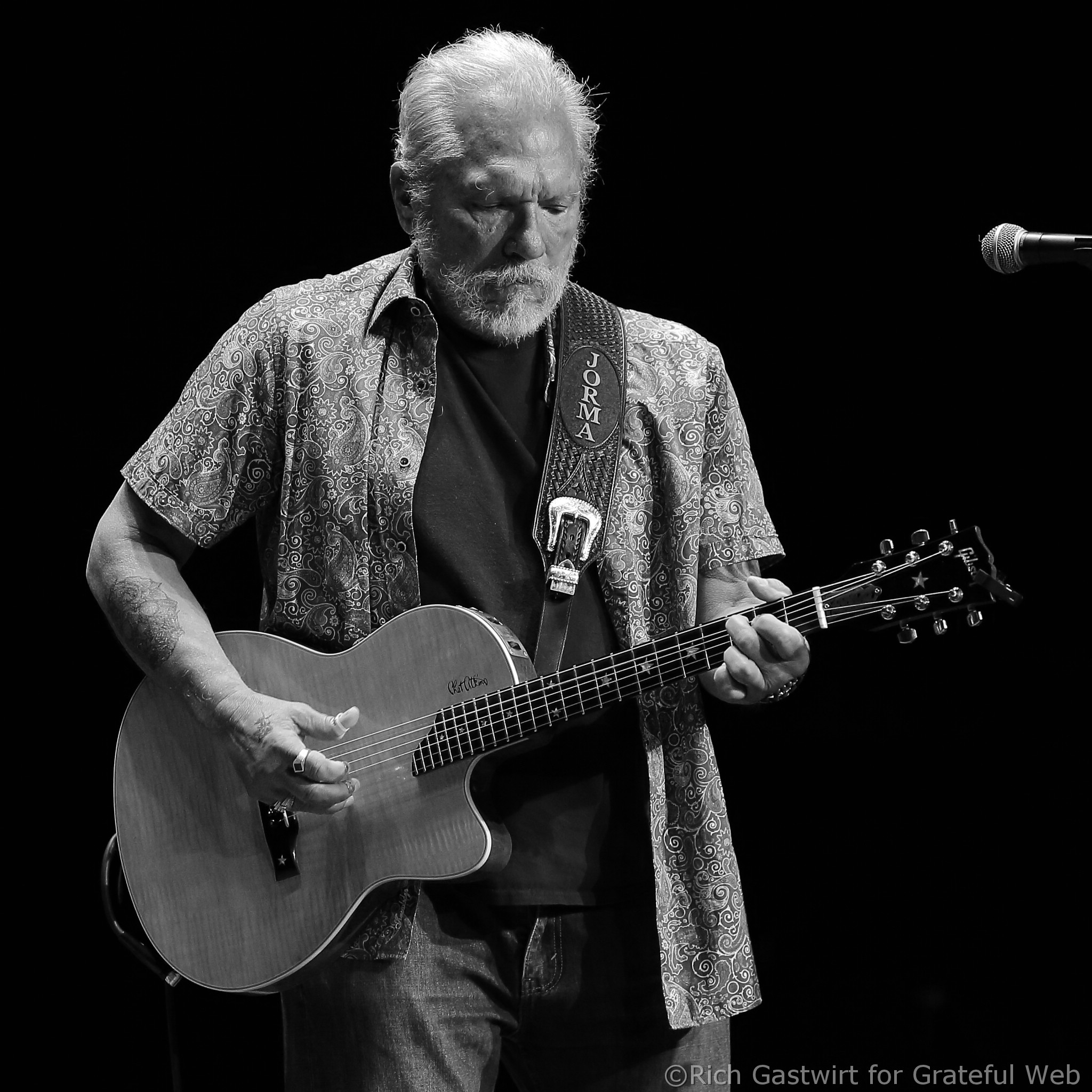
GW: I think the sound guy can be very underestimated.
Jorma: Oh, my gosh, you know, my guy Myron—we talk about him during the Quarantine Shows—we’ve been working together for about fifteen years. He’s my guitar tech, and he’s my sound guy on the road and stuff like that. And to me, honestly, he’s as important to my show as I am because he gets the sound from me to the audience.
GW: And you can tell the difference.
Jorma: Oh yeah. Oh, absolutely.
GW: I’ve been watching the Quarantine Shows pretty much from the get-go, I even saw an article in The New York Times that listed you guys as one of the concerts to catch.
Jorma: Actually, that’s pretty cool.
GW: In a strange way, you’re kind of sitting there by yourself during these concerts. I don’t think you have too many people sitting there with you. So you’re performing to . . . like what are you looking at?
Jorma: Well, we have a little theater at the Ranch, and it’s a great sounding room. And like I say, I live on-site also, so everything is kind of like an extension of our house. So it’s very comfortable to be in. But yeah, you’re right. When I can get my daughter out of her room to shoot one of the cameras at me—she runs one of the cameras—and my wife and Myron and then Andy, who’s our video production, and that’s pretty much all it is. Every now and then—we’re not doing it right now because Ohio is spiking right now, so we’re trying to stay away from people—but earlier in the summer we had some guests over, some of my daughter’s friends and their families and stuff like that. And we’d have them all socially distance around the room and stuff like that. Basically, I’ve convinced myself that there’s an audience out there because all of us guys that play, we all respond to an audience, that’s part of the deal. And so I’ve convinced myself that that is the deal. There is an audience out there. And I believe that I can actually feel you all out there, and that’s important.
GW: I think you probably can, and you’re also reaching—I mean, your first show, I think it has a hundred thousand views on it—so you’re reaching a crowd that you could never reach otherwise. So in actuality, you have a huge auditorium going.
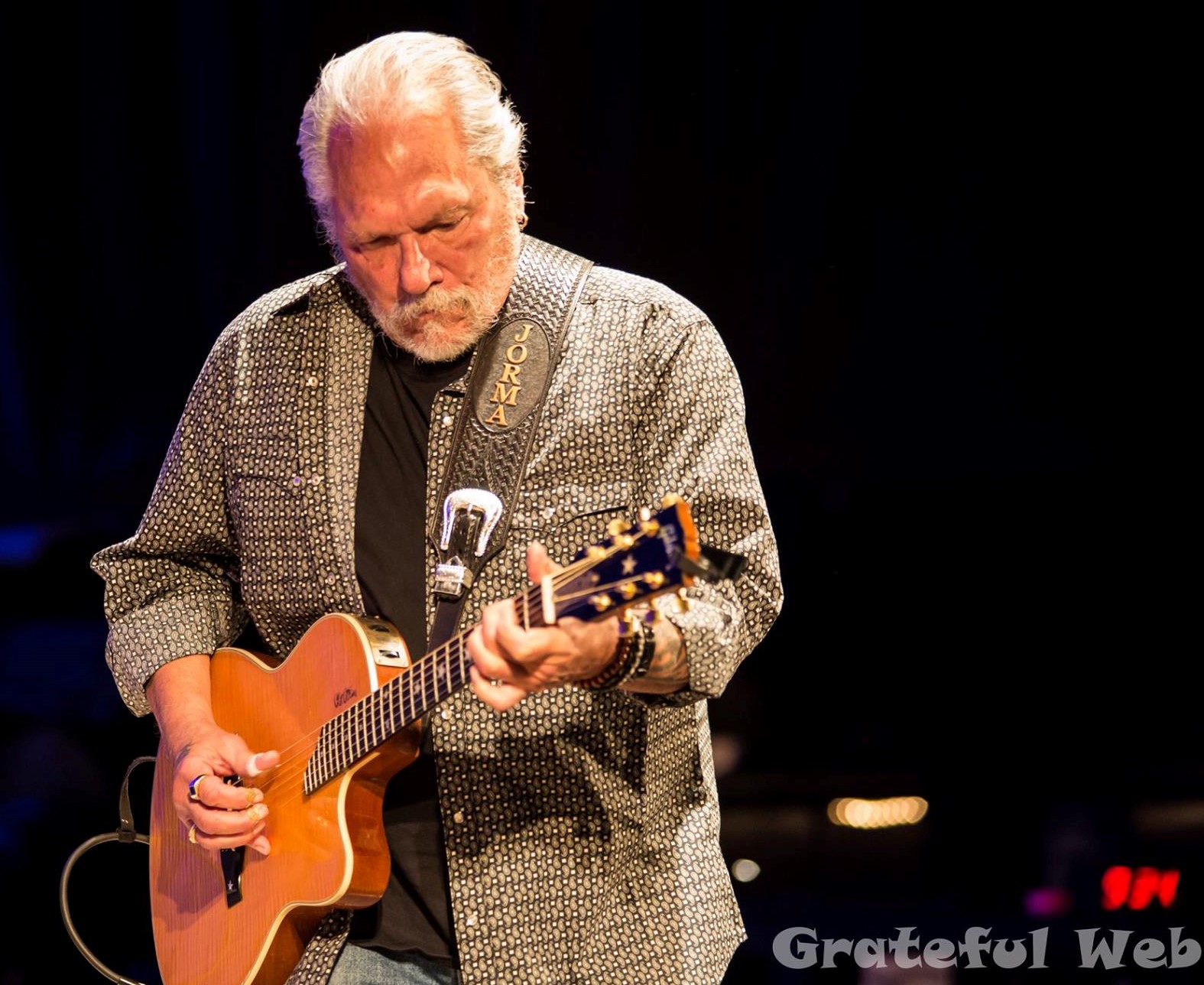
Jorma: Oh, you’re so right. Absolutely. We joke about it. The people who do this streaming stuff go, “Well, you know, I only got 3,500 people.” But to this, I go, “Yeah, we just sold out the Beacon Theater.”
GW: [laughter] Right. Exactly. And you’re playing throughout time as well. As I was looking up your gigs on YouTube just for fun, it led me on to some great music—stuff they had on you, as well as the people related to you; you playing with Jerry, Crosby, and Casady, some old and new stuff. The rockin’ music that you led me through was unbelievable, with decades of music that is still being watched as if it was new. Some of it certainly was to me. And though put out years ago, people are seeing this for the first time—new people and young people coming into this music. Music can now be out of time with itself, I guess is what I’m trying to say. Like you said, you have Deadheads sitting at your ranch.
Jorma: Yeah. The whole process is so amazing because—I mean, what you and I are talking about here, and I don’t mean to sound disingenuous, but we’re talking about real music. You know, there’s a lot of music out there. But the thing about real music is it actually touches people’s heart in some way. Maybe not because of the lyrics, but just something about it, that quality that makes you want to go back and listen to it again. I mean, heck, when I was a kid, we liked to listen to stuff from the twenties and thirties because that’s where the music that started me off playing the guitar came from. If you think about it, here we are in 2020, the music of the sixties and the seventies or whatever, is further away than the twenties were to me when I started playing guitar as a kid.
GW: Interesting. [pause] Excuse me. That kind of shut my brain down for a second thinking about that. Music has changed a lot. The promotion has changed a lot, and you’ve had to change with it, yet you’ve stayed relevant for fifty-some-odd years. I was wondering how you have changed with the kind of promotion you were doing in the seventies to what you’re doing now. And how you adapted to the internet.
Jorma: Well, I mean, look, it’s such a different ballgame, and that’s why the Culture Factory actually doing a record, in vinyl, for me and John, that’s unbelievable in this day and age, to actually get a company that’s interested in a couple of old guys to not only do a project but to do the quality and the timing they did with this thing. In a way, it’s kind of a new page for me—it definitely is for John, because he’s, “not in the business” the same way that I am. Well, he is now, obviously. But yeah, time marches on—I still like CDs. My wife’s car doesn’t even have a CD player in it. How can that be? [chuckles] Right?
GW: [laughter] Yeah. Well, you know the one thing that you did get to capture in this album, which I think is really hard to do, whether the musicians are strangers or friends, is that meeting around the campfire type of sound, where people are connecting through classical tunes and that musical conversation. I was talking to Keller Williams about this last year where he was saying you’re never going to get the music you get backstage at a music fest or you get with a pickup with friends. You’re never going to quite capture that onstage. But I thought you guys did a great job of capturing that, and it comes across on the album.
Jorma: Yeah, well, I think Keller hit the nail on the head with that one because the good stuff always happens when you’re warming up. At least we think so. I think what happened with me, and Johnny too, is we’re home here. I live in a very rural county. There’s only 70,000 people in the whole county. Johnny lives down here too. And so for us to sit around in one of the buildings we have at the Ranch and be fortunate enough to have a guy, a quality engineer with a bunch of recording gear—basically, we managed to remain unintimidated by the fact that we were recording. I think that was important because a lot of times, and I told Johnny about this too—Look, you know, we’re not going to fix that. Obviously, if you really screw something up, we’ll just do it over again. But just plain forget about all this crap. I think the hardest thing for Johnny was that he had microphones in front of his face so he couldn’t see me, because we watch each other. But once he adapted to just listening to me in the headphones, then that was gone. And again, it was like playing for one of our lunches or something like that.
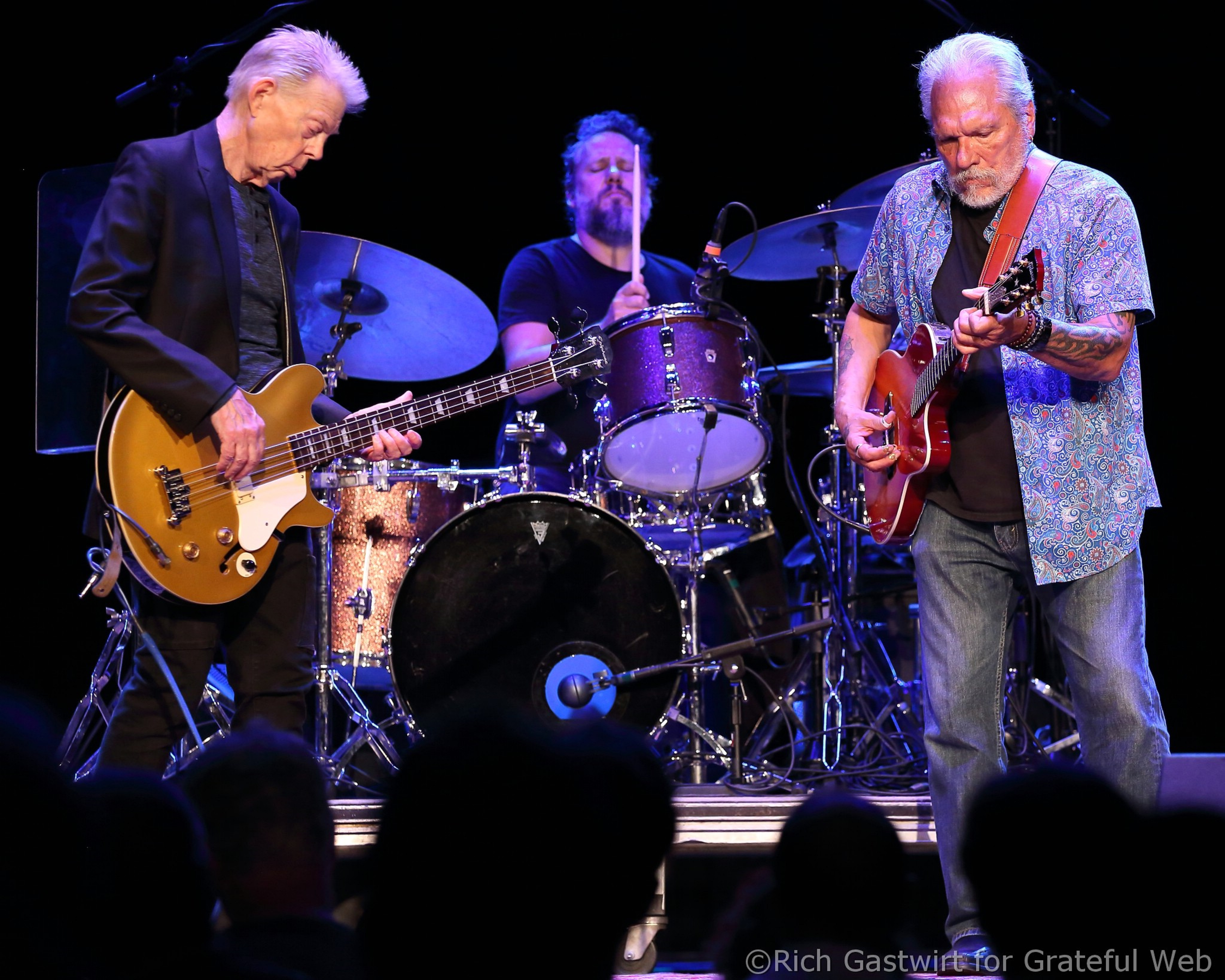
GW: I was laughing about John, because while coming out with an album like this—though he’s had some bands over the years, and even opened for Hot Tuna a few times—it just goes to show, you’re never too old to become a rock & roll star.
Jorma: [chuckles] Yeah, there you have it. It never is. We’re just so—Johnny just can’t quit talking about it because he’s so excited. And I get that. Jack (Casady) was out here for awhile, and hanging out, and I go, “You know, Jack—I mean, Hot Tuna, we’re still signed, we’re signed to Redhouse Records, and they’re really nice people, but they don’t get us. And they’re not excited. They would never do a project like this for us, ever.” And I don’t mean any disrespect for them, they just wouldn’t do it. I remember talking to Gary, to cut a live album, and he said, “Live albums don’t sell.” Okay, fine. So for Johnny and I to get a chance to do this, it’s monumental.
GW: Yes, yes it is. It’s interesting how record companies have changed over the years. You can just go on YouTube, catch live shows, just see the songs. YouTube is a lot of live shows, so it’s funny they don’t sell.
Jorma: Good point.
GW: How is the record industry adapting to having all this music on YouTube where you never even have to buy an album?
Jorma: Obviously, intellectual property is a discussion we could spend a lot of time on, and obviously, it’s something I believe in profoundly, but I don’t think it hurts us for stuff to be on YouTube, because for a guy like me, if I get turned onto something by YouTube, I’m going to go buy it if it’s available.
GW: Yeah. I’m that way.
Jorma: I like to own stuff in my collection. If it’s something I really like, I will buy the CD also, because I want it in my collection. It’s not enough to just have it. The other thing too is, when you listen to stuff on your phone, or whatever your gadget is, you don’t get the same hi-fi experience if you’ve got a decent hi-fi.
GW: Oh, absolutely. Absolutely. I’ve invested in that purposely so.
Jorma: That’s right.
GW: I like to support my musicians too.
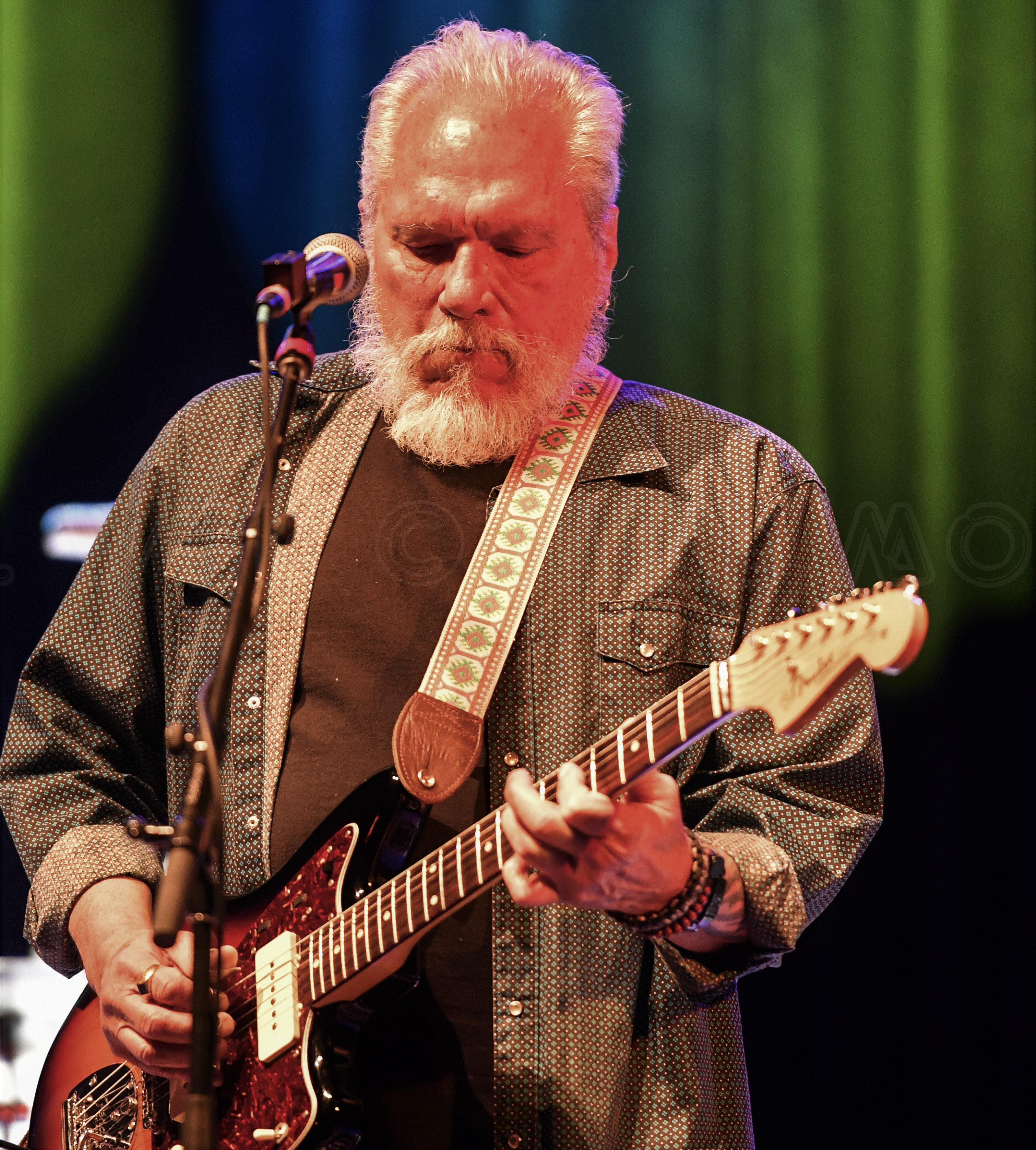
Jorma: Sure. Well, listen, as a musician, I appreciate that, but I’m on your side of the fence too. Not only do I like to support my musicians if it’s something I like, and I’ve already said this a couple of times, I want it in my collection so when I go to my rack of stuff, and somebody talks about something, and I go yeah, I got the John Hiatt album from whenever, in it. And I’ll sit ‘em in the sweet spot between the speakers and say, “Listen to this,” the “Native Son” or whatever. Yeah, you know.
GW: I do. One of the things I would like to swing over to, because I don’t want it to go unmentioned, is you are actually more than a songwriter, you’ve got your blog going, and you put out a book a couple of years ago as well.
Jorma: I did.
GW: I want to thank you for that book. I have to say, and I don’t want to sound funny saying this, [laughs] but there was a surprising depth to your writing.
Jorma: Oh, thanks. I’m—thanks. Listen, I appreciate that because I’ve done some blogging over the years, and this and that, and one of my friends—he’s an author—he used to say, “There’s two kinds of people in the world: people who talk about writing a book, and somebody that actually does it.” So having done that, the discipline of it was a different thing for me. I’m thinking about doing another one, but we’ll see. I enjoyed the discipline. It made me think about my writing in a conscious way that I’ve never really done before. So for somebody—for you to like the way I write, that means a lot to me, because I put a lot of work into that. By the time it was done, I was utterly unintimidated by the process. It was a miracle.
GW: I’ve actually written a couple of books, neither of which I tried to publish, but I’ve been through the process of writing a book. So when I originally saw that you had written one, I was curious about how that process went for you. It does take over your mind, the focus necessary, because you’re trying to articulate these feelings, emotions, sometimes from years ago. I thought you did a great job.
Jorma: Thanks, man. Thank you very much. As a writer yourself, you’ll appreciate this. You turn your manuscript in—I’m very lucky because I have a publisher—and you turn your manuscript in and the people that edit stuff—and my hat is incredibly off to people who do that—they do the rewriting, and they make me change stuff. They made it better, because that’s what they do. And I learned so much about the writing process that I think my next book will probably need less editing. I mean, just like over-using words, it’s just like nuts and bolts stuff that professional writers know about. I never really paid attention because I kinda sort of like the E.E. Cummings train-of-thought process. But that doesn’t necessarily make for a good book. So I learned so much about tightening things up, and, uh, ah, you know, [chuckles] blowing less smoke and more substance.
GW: [laughter] Well, I think it has a very natural progression. The first person came across well. You showed that you had some depth in your understanding, and I’ll even say, in your soul. But you also had a broad historical perspective you brought to the book that I thought added yet another dimension to the writing.
Jorma: Oh, thanks, thanks. Well, I’ve always read a lot. One of my friends, Verlon Thompson—he was Guy Clarke’s accompanist, who’s a great songwriter himself—and one of his things is, to be a good writer, you need to read a lot. And I read a lot. So I have a lot of areas that I’m comfortable with just because of my intellectual world is a lot richer because of the stuff I surround myself with. And I think when it comes to giving back in terms of writing, that’s a big help.
GW: That’s interesting you say that. One of the things I had been thinking about lately, especially with the way the news and the world is today, is we kind of become echoes of ingestion.
Jorma: Oh, nice. Good line. Good line.
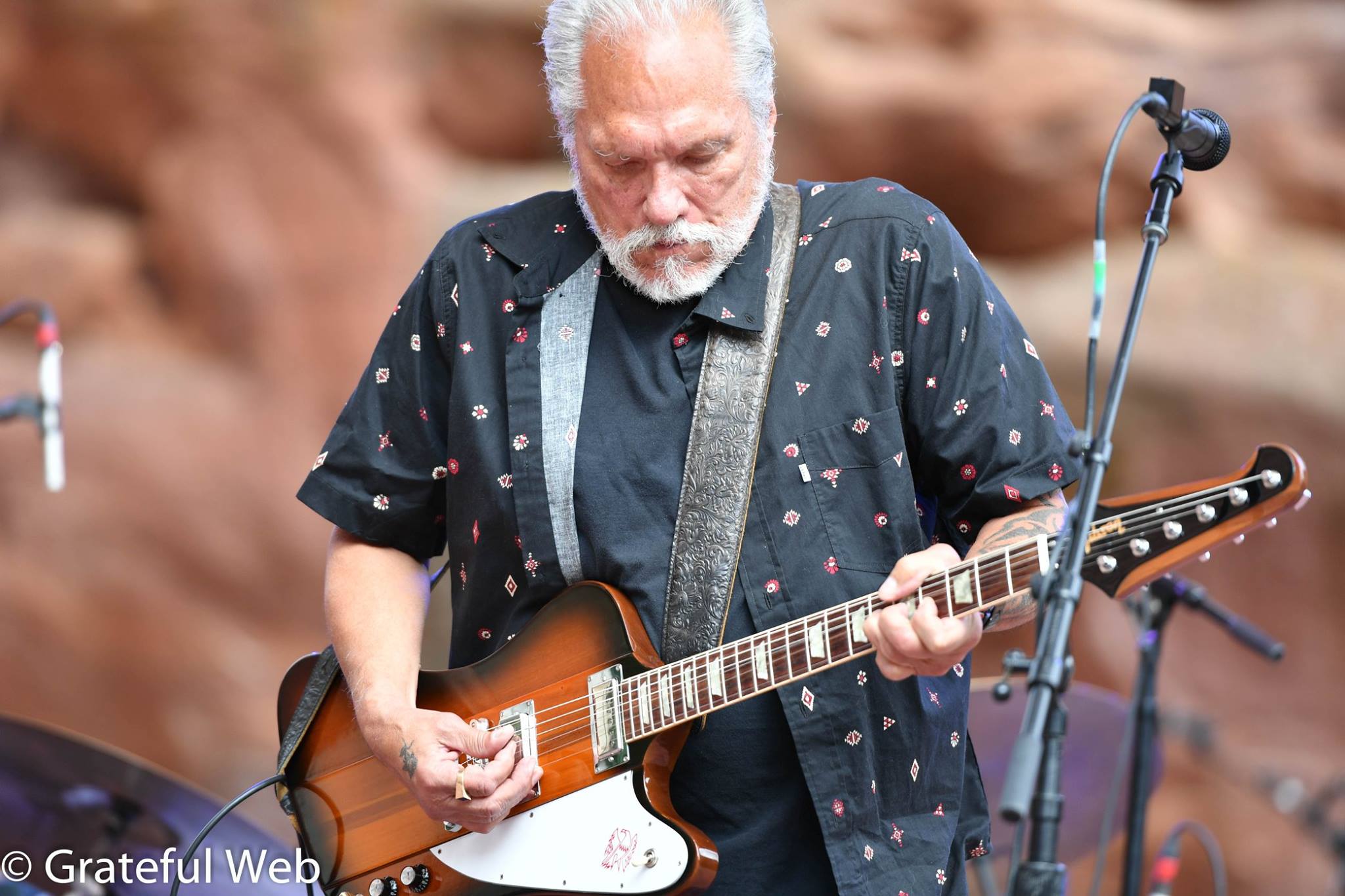
GW: So I started thinking about how important it becomes to what we ingest.
Jorma: Totally. I totally agree.
GW: You’ve created what my wife calls, Strategic Body Placement, being careful where we place ourselves because we reflect our surroundings and our environment. Our minds reflect what it ingests, and in the sculpting of our being, all things that go into the forming of it, need to be taken into account. And in your case, you and your wife built your Fur Peace Ranch together, right?
Jorma: Yeah. Totally.
GW: So that was a big project for you guys in the beginning.
Jorma: Sure. Absolutely. So I’ve been married twice. And my wife has been married twice. And the good news is that we’ve both been married for a long time now. We got thirty-three, thirty-four years now. I gotta figure that out before our anniversary comes. [laughter] But yeah, so the Fur Peace Ranch is really her brainchild. She was a civil engineer before we got married. She designs stuff. I mean, she’s—yeah, my name’s on the door, and I’m a great partner, I work well with her—but all the stuff that’s happening here is absolutely her. And if you’re ever down in the Lower 48 or something—well, when you get to hang out with people again—you gotta stop by and take a look at it. Every time I drive up my driveway and I look at what we’ve built—we’ve got over twenty buildings—and I wonder, how did this happen? How did this happen? You know.
GW: Man, that’s a lot of maintenance.
Jorma: [laughter] Yeah. And like I said, my battery just died in my utility vehicle, and our maintenance guy helped me push it into the garage. That’s what I was doing when you called. We’ve got a great maintenance guy. His name is Smiles. His name really is Smiles. That’s on his driver’s license.
GW: [laughter] Nice. That’s great. That’s great. Well, you keep really busy. I mean, you’re writing books, your blogging, you’re doing the Quarantine Shows, you’re running a music ranch. You’re keeping yourself really busy.
Jorma: Yeah.
GW: Does that wear on you at all? Or do you feed off of it?
Jorma: I think I feed off it, actually. I think it’s important for me to stay busy with things that have to be done, otherwise, a tendency to sit on my ass and watch streaming shows on Netflix might take over.
GW: [laughter] Yeah, we don’t want that. I kept a TV out of my house for over thirty years because I didn’t want that.
Jorma: I totally understand.
GW: Before we end. I wanted to mention that I caught your Hot Tuna show there after Thanksgiving. That was a great thing to catch. Was that the first time you guys have played in a while?
Jorma: Yeah, it was. We had such a good time. Our last job was, I think, on the first of March in St. Louis, and it had to be shut down. That’s the first time we’ve gotten together and played since March first or second.
GW: That was a pleasant surprise. I didn’t know that was what was going on. I just tuned into the Quarantine Show to see what was up and was like, “Oh, hey, something different today.”
Jorma: Yeah. We had a good time, a really good time.
GW: That’s good to hear. Was good to hear. Well, I think I will take you up on that offer if I end up in the Lower 48.
Jorma: Oh, absolutely. Anytime.
GW: That would be a lot of fun to see the place.
Jorma: Anytime, my friend. And I sure hope I get to see your place too.
GW: Well, next time you plan to make it up here, let me know.
Jorma: Absolutely.
GW: Thank you for your time. And thank you for the album. I really appreciate that and all else that you’re doing, Jorma. It’s been a great honor to chat with you.
Jorma: You too. You take care of yourself.
GW: You too. Bye now.
“Spent a little time on the mountain. Spent a little time on the hill.”





